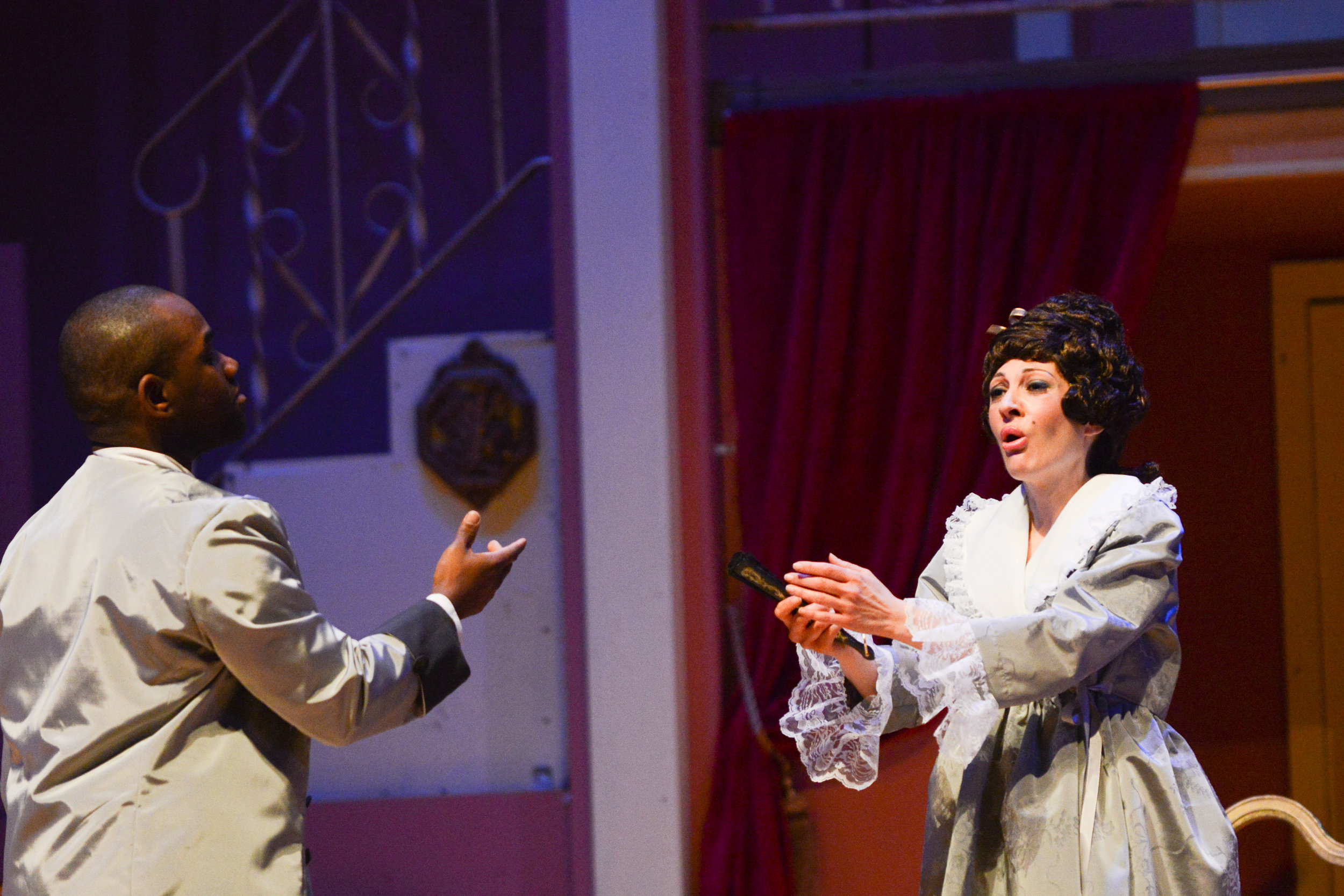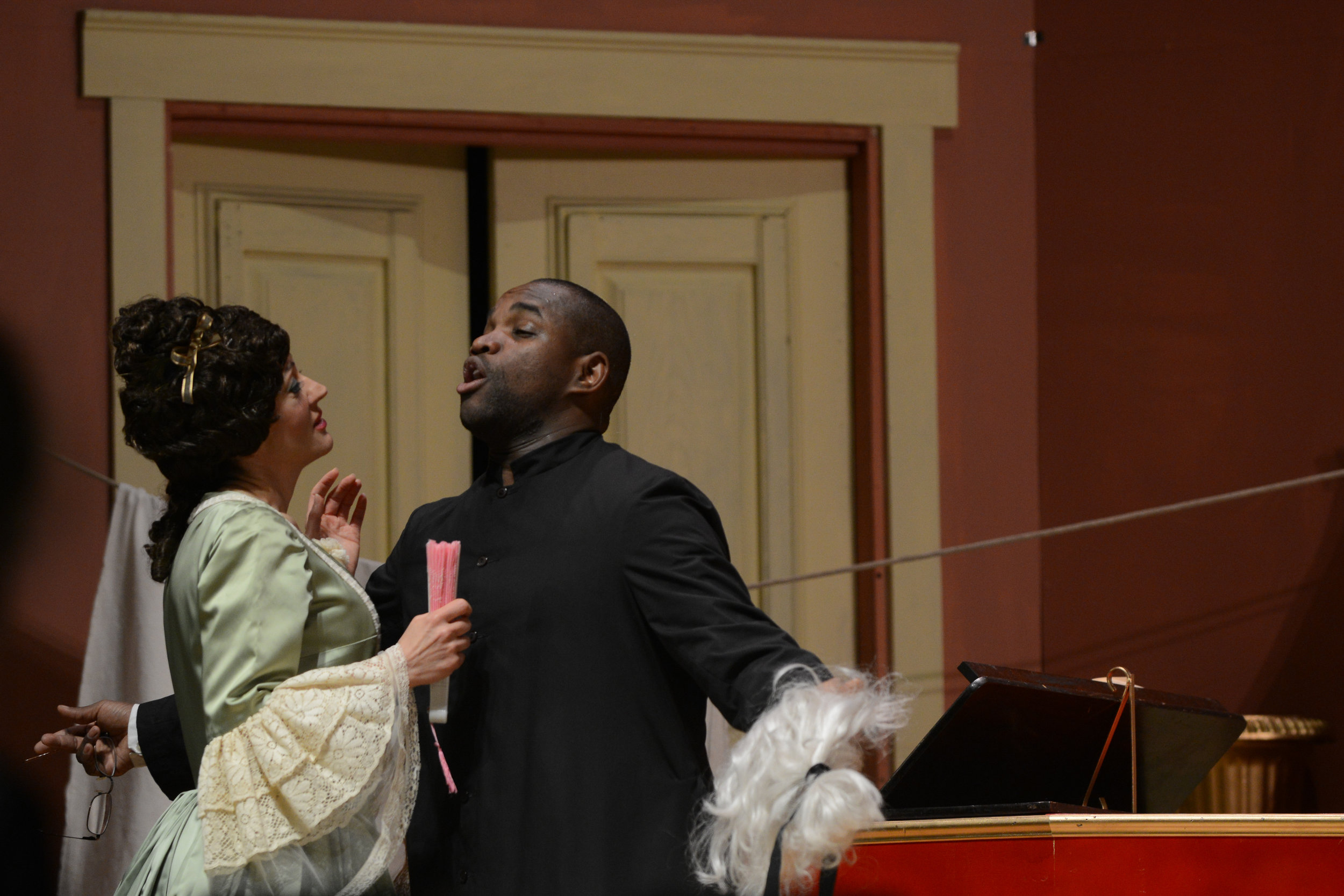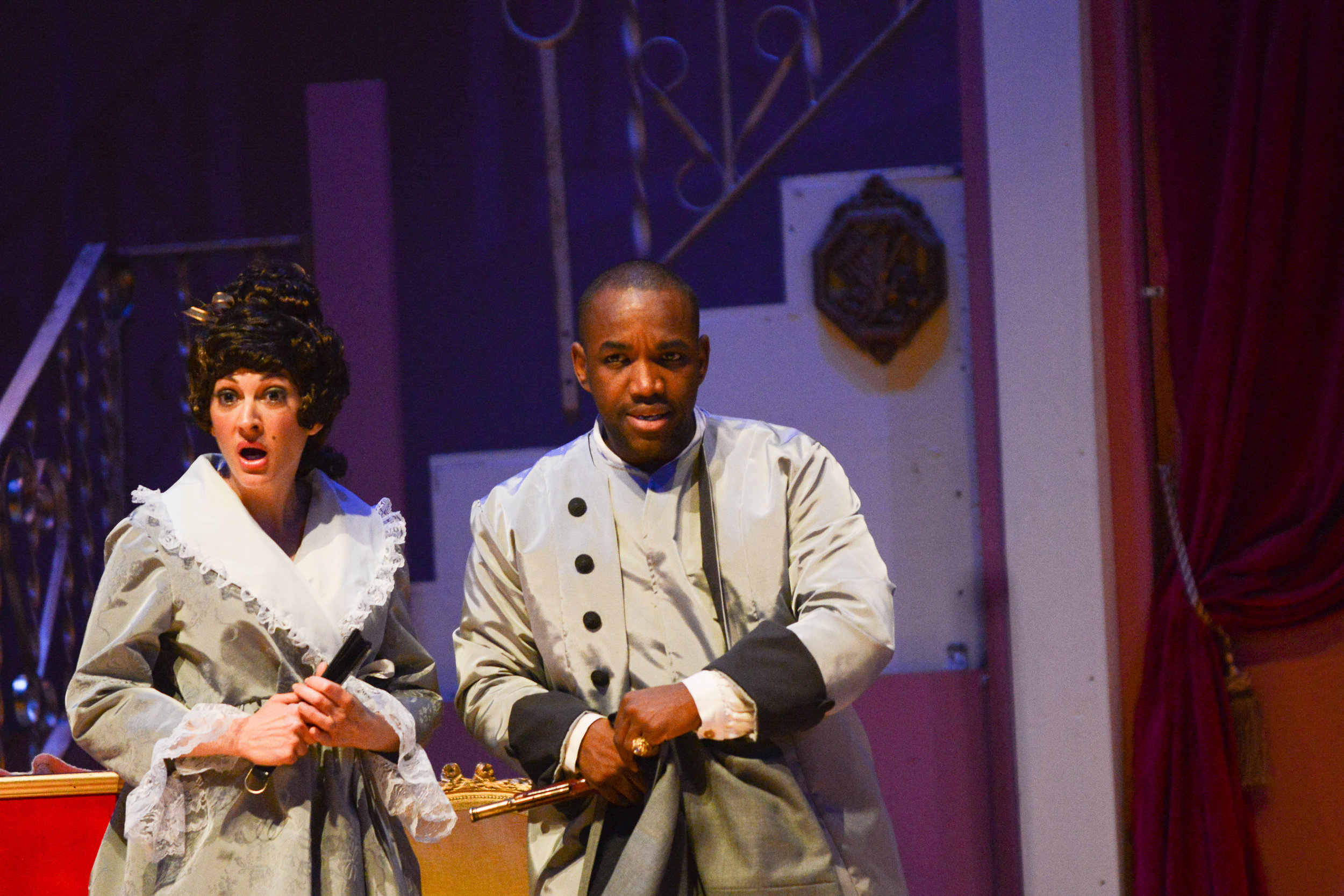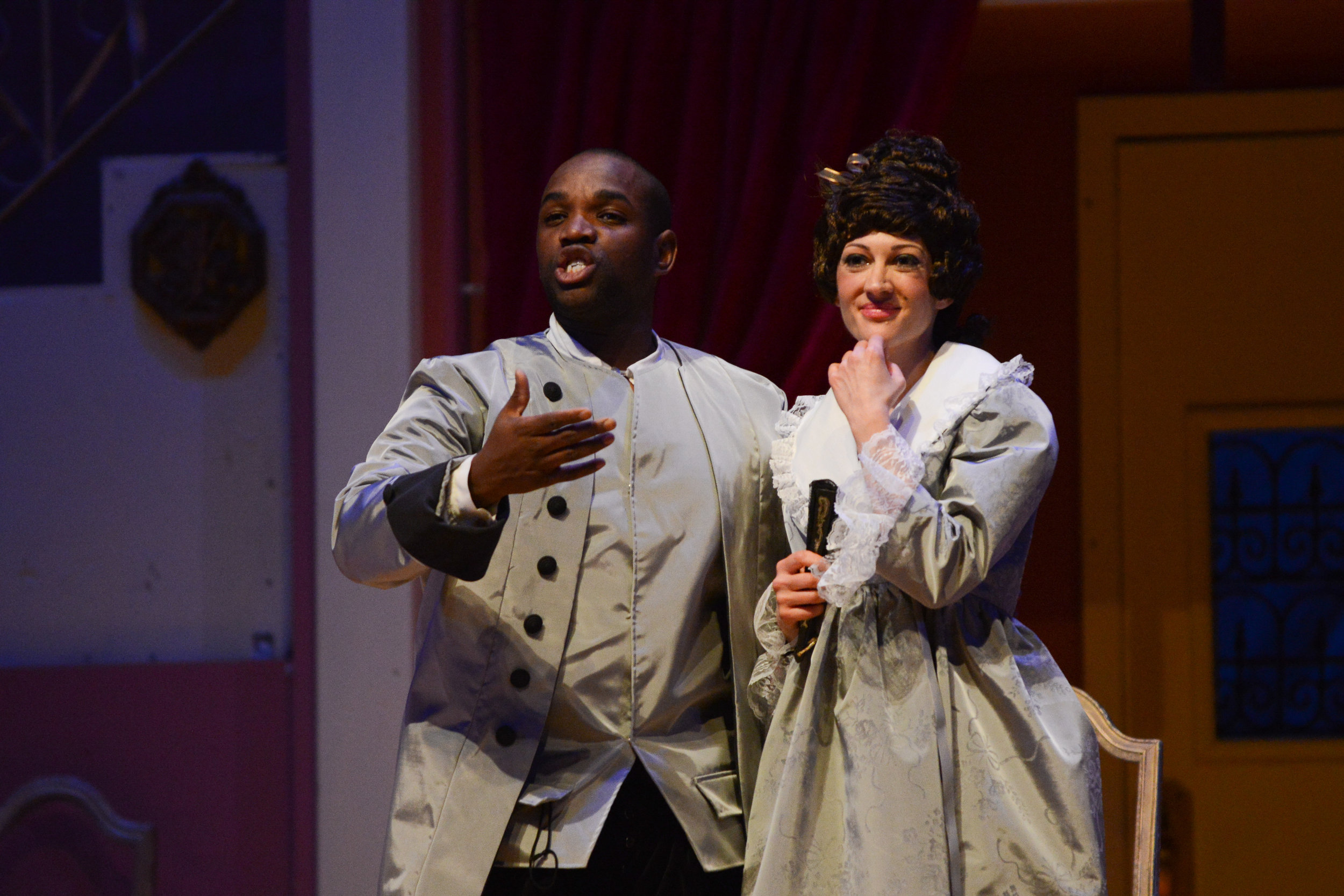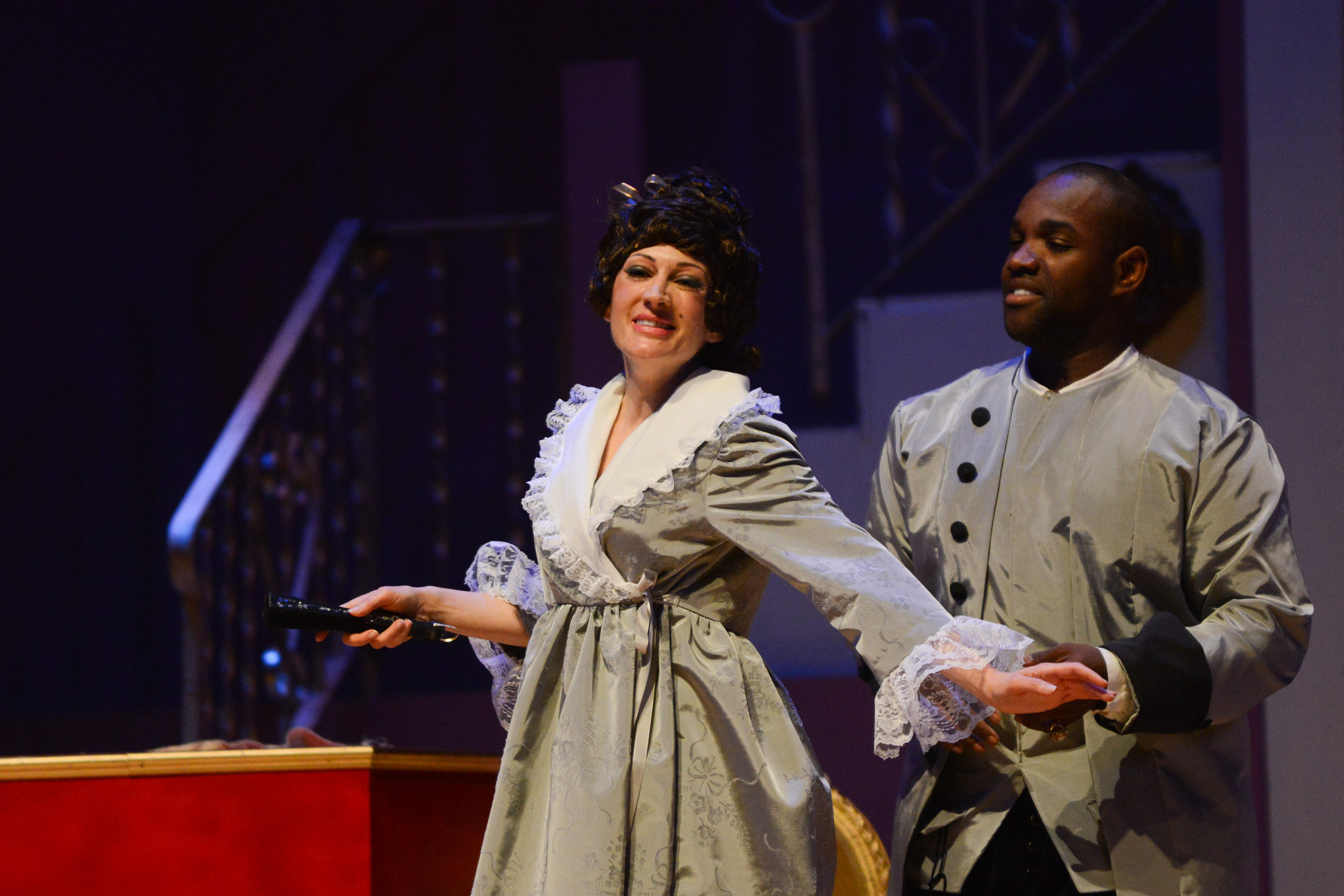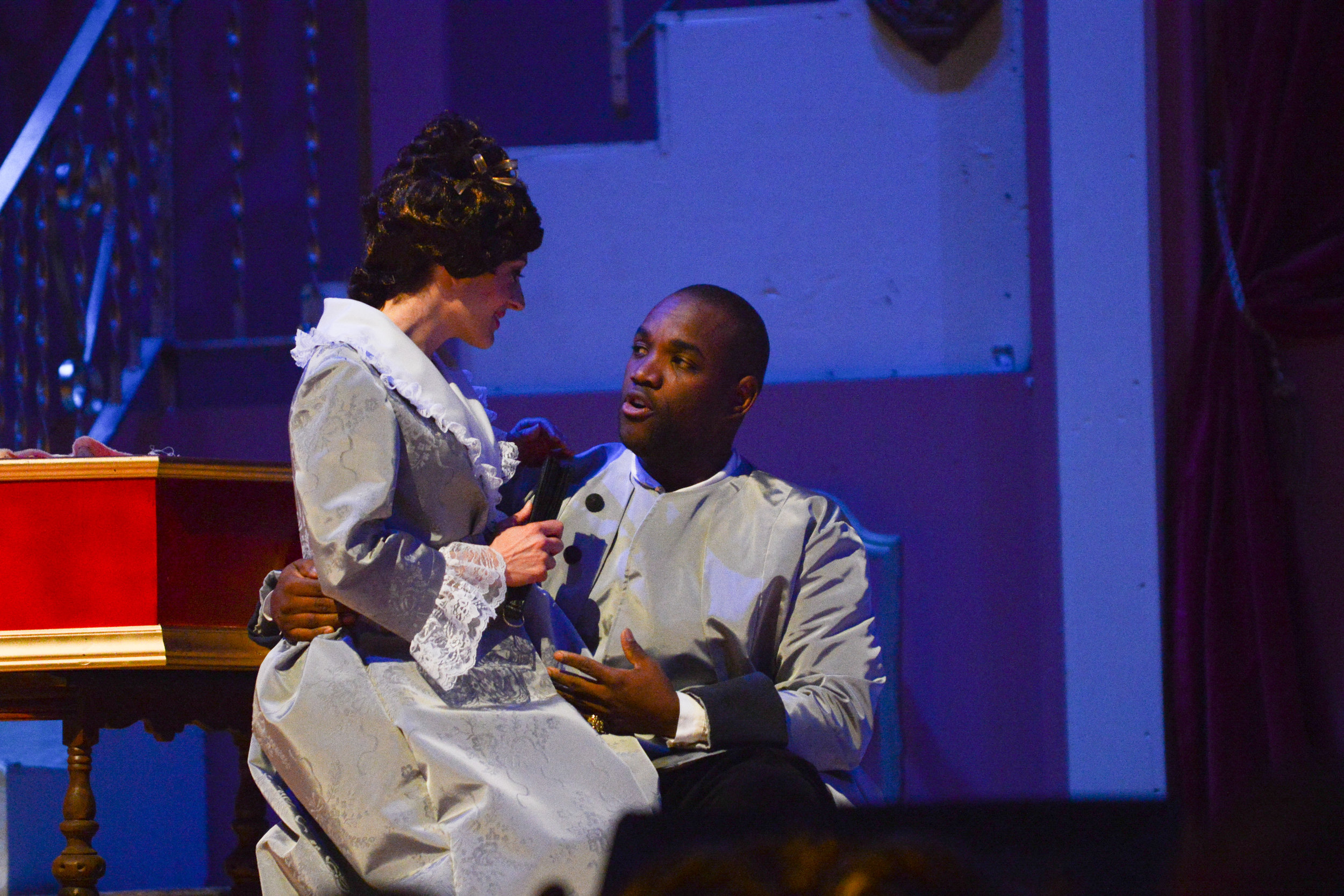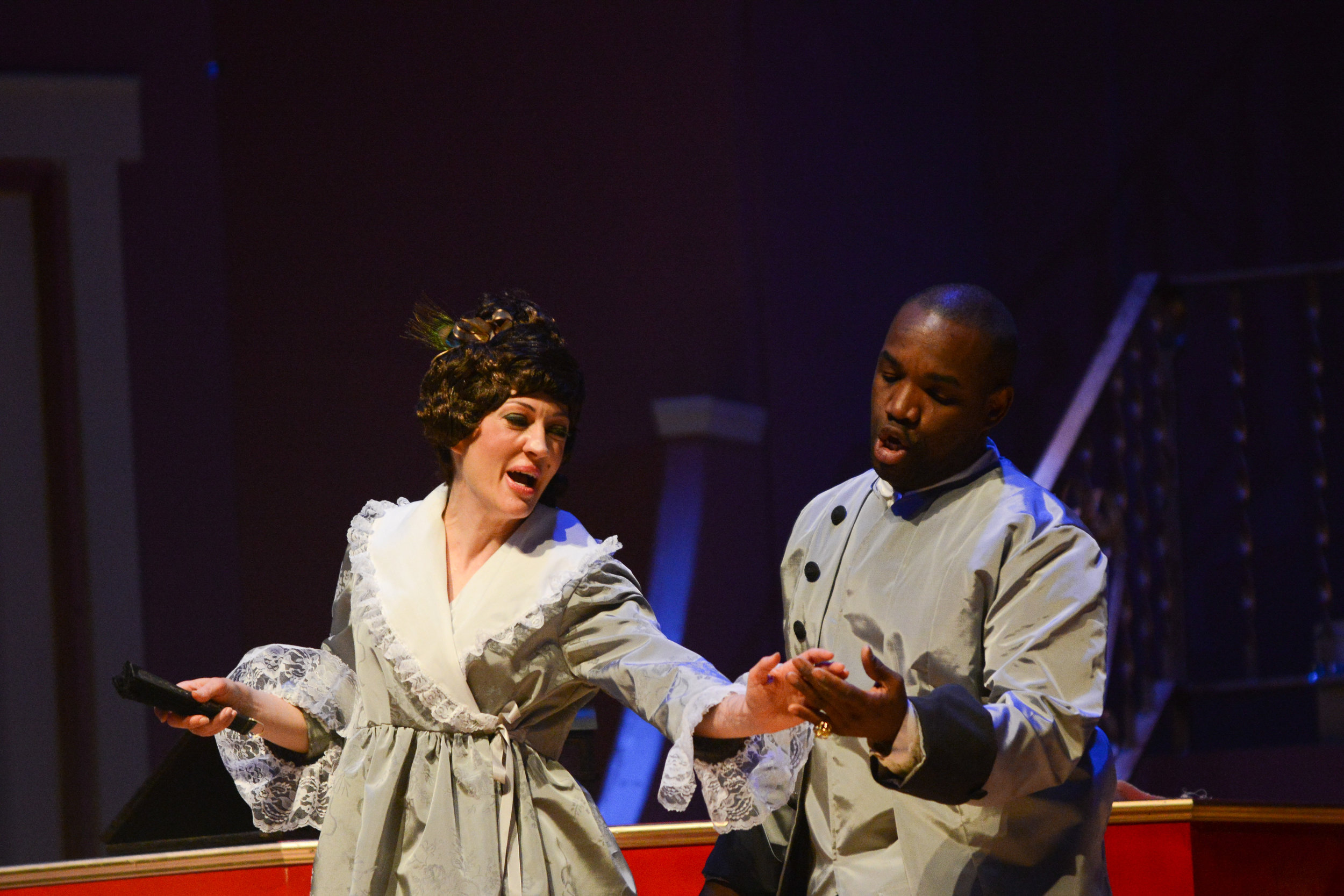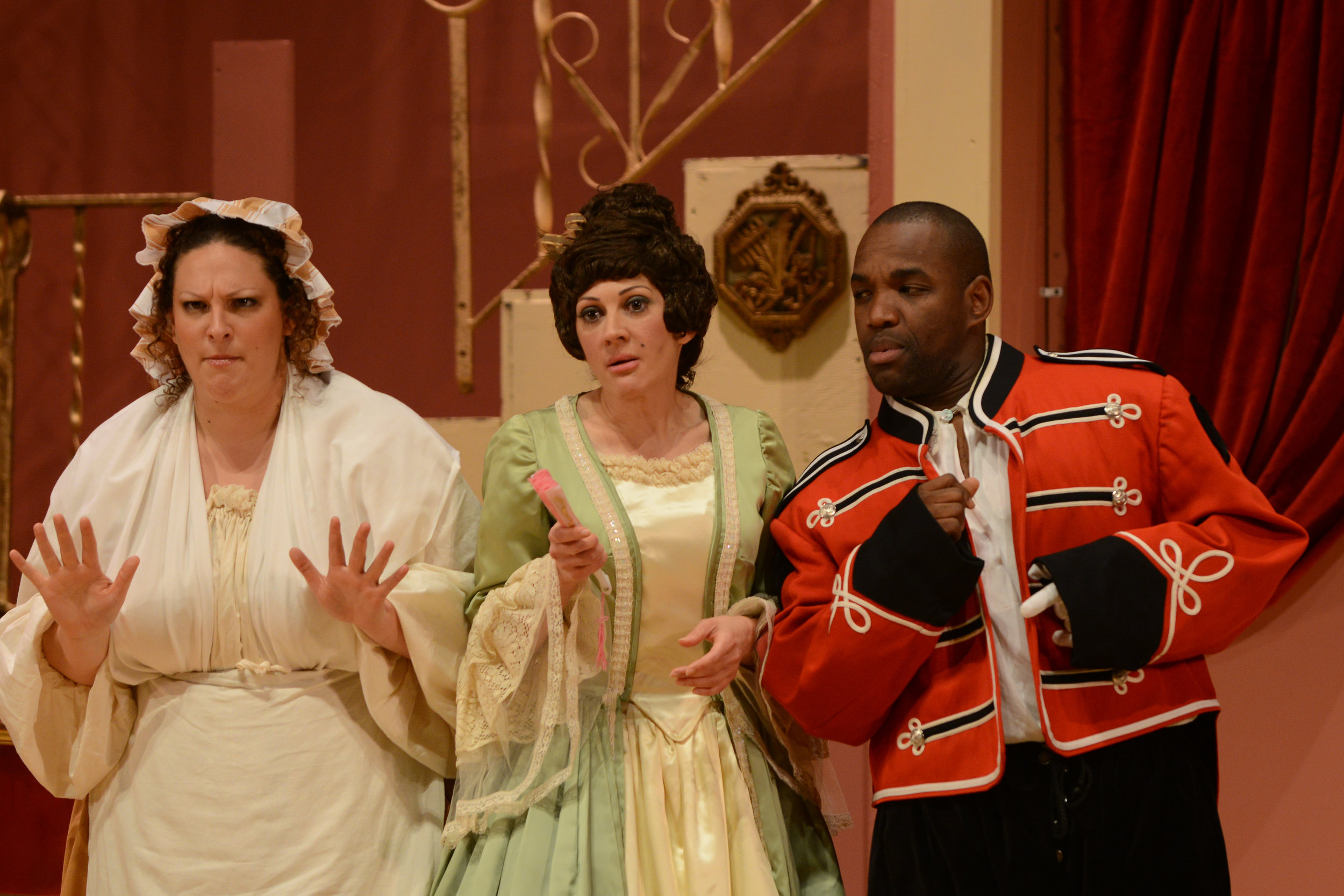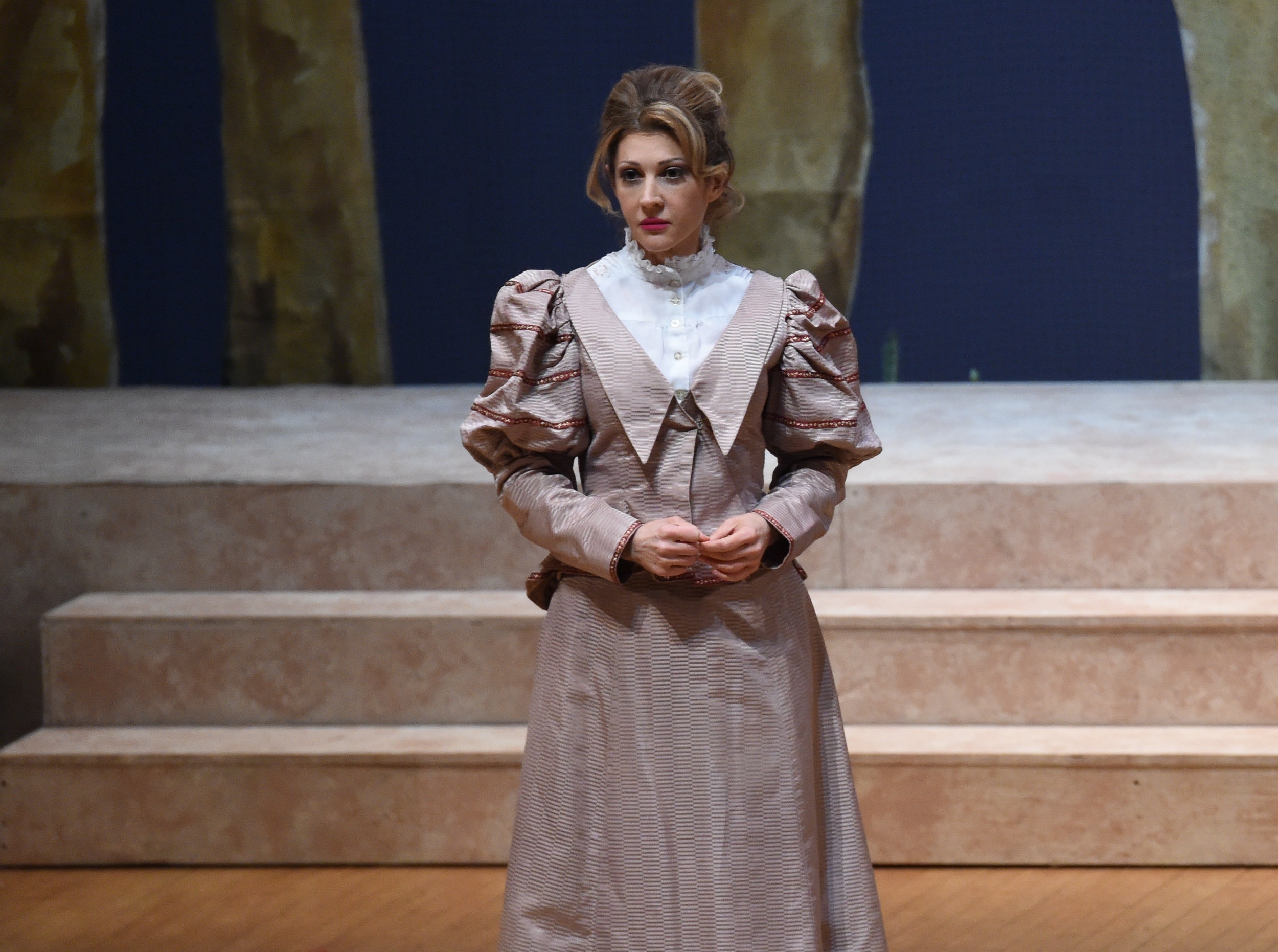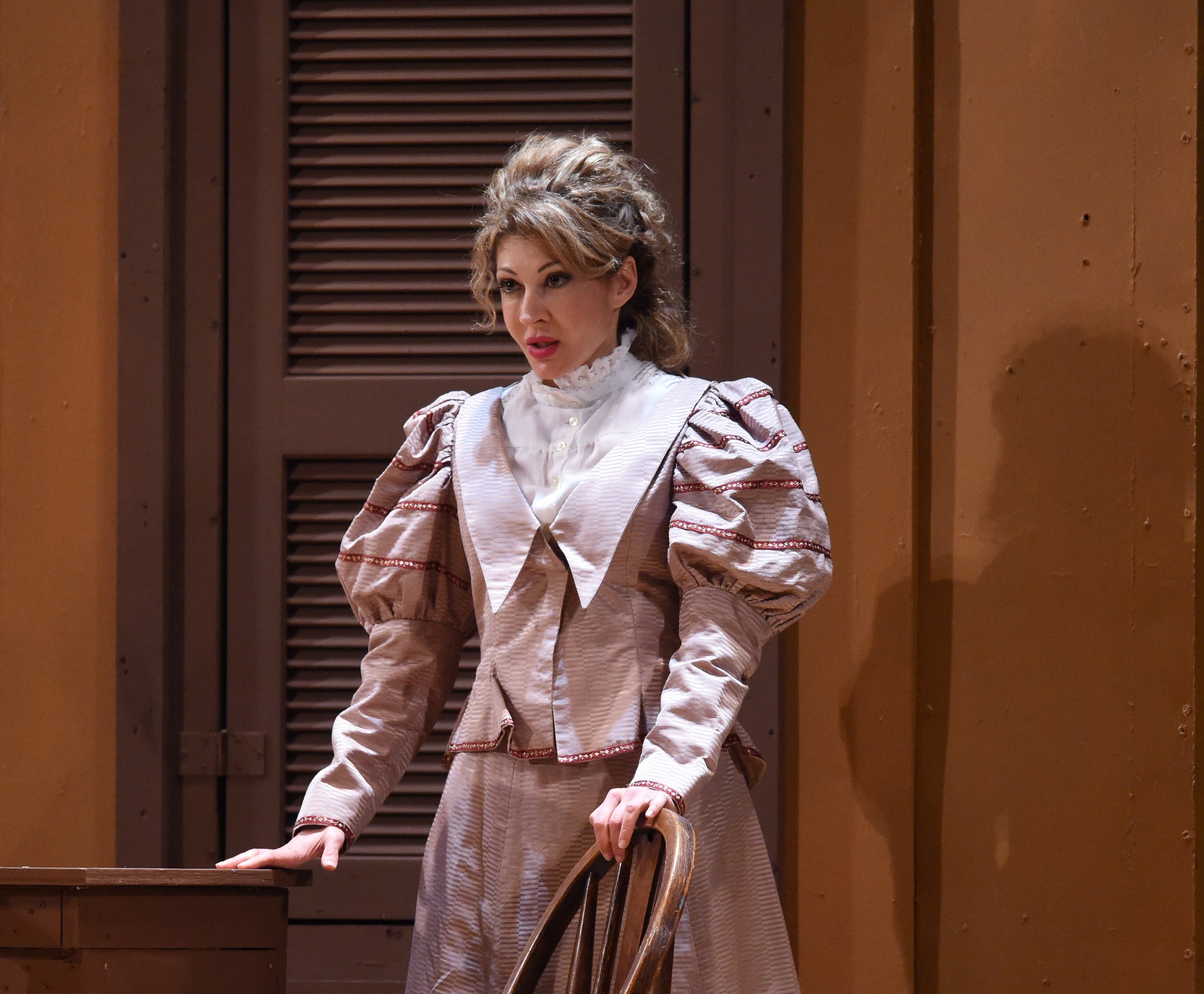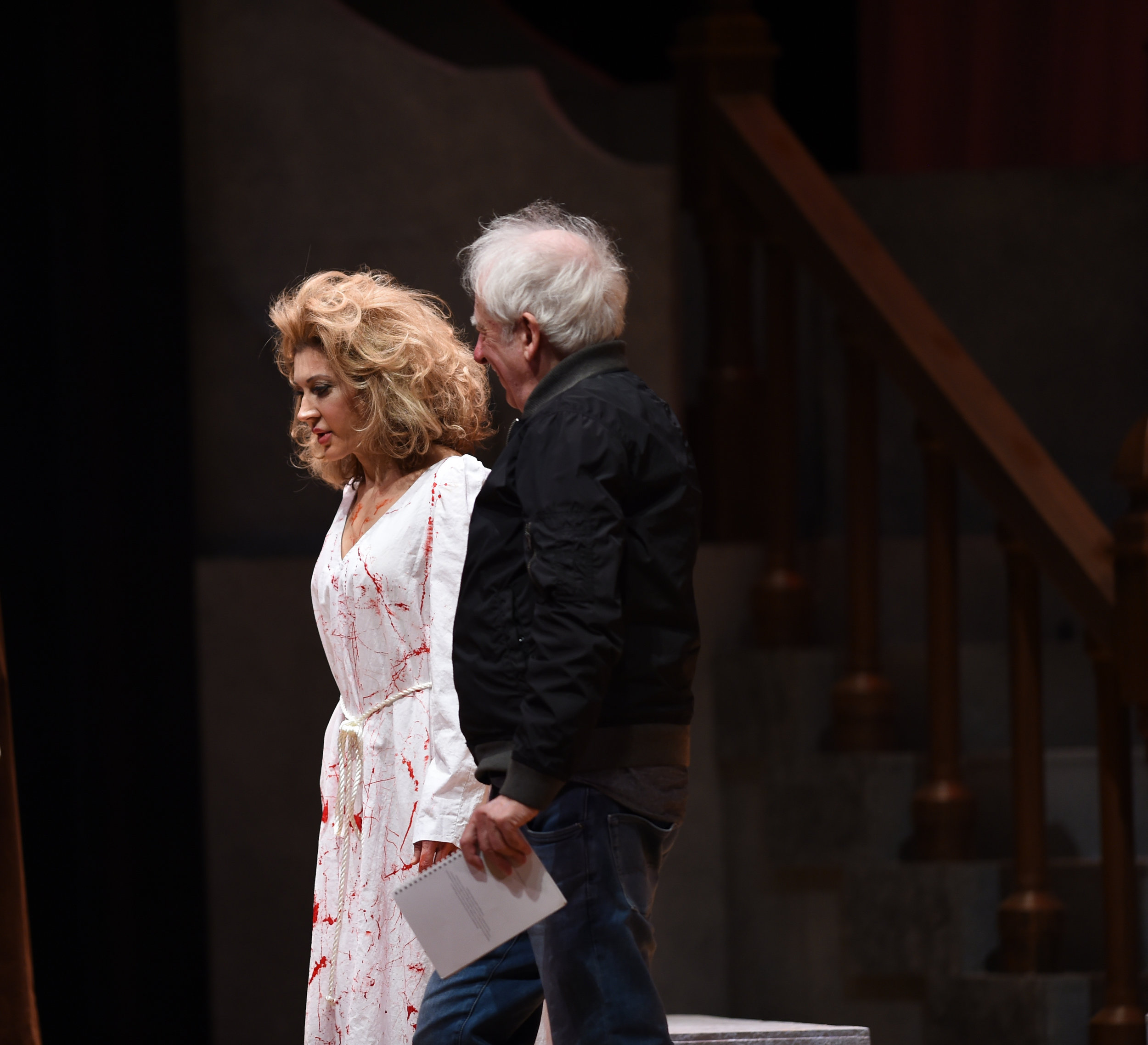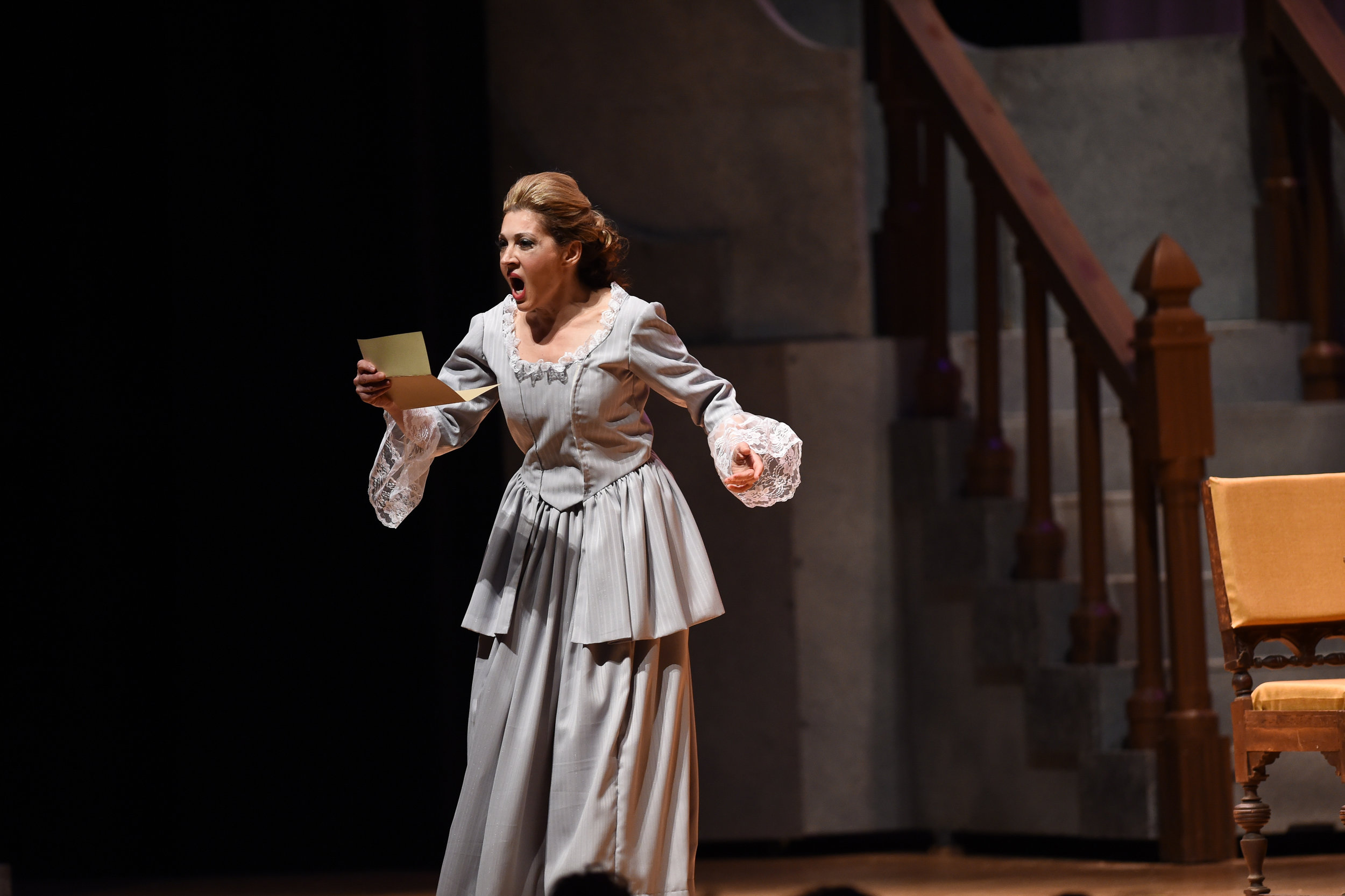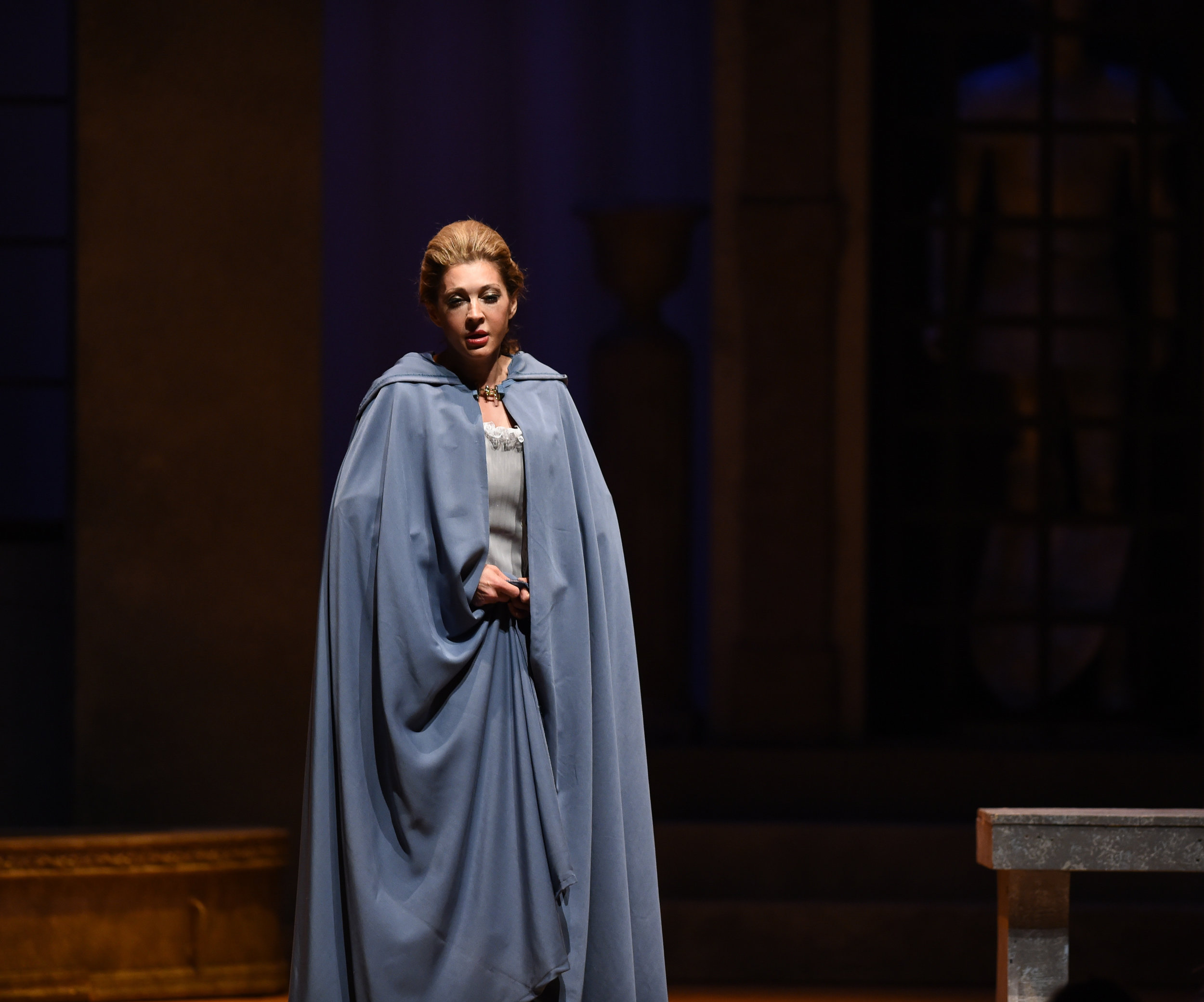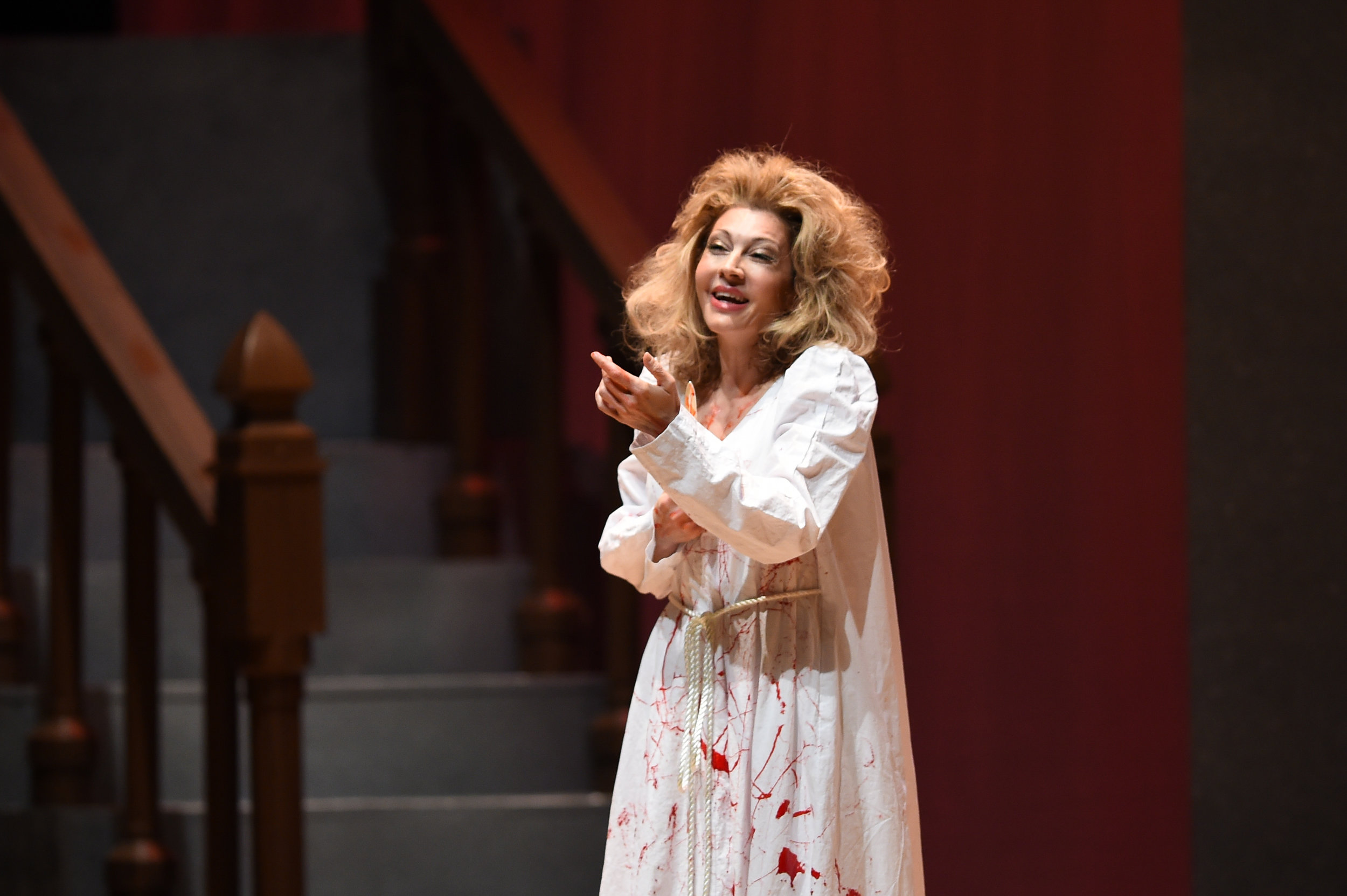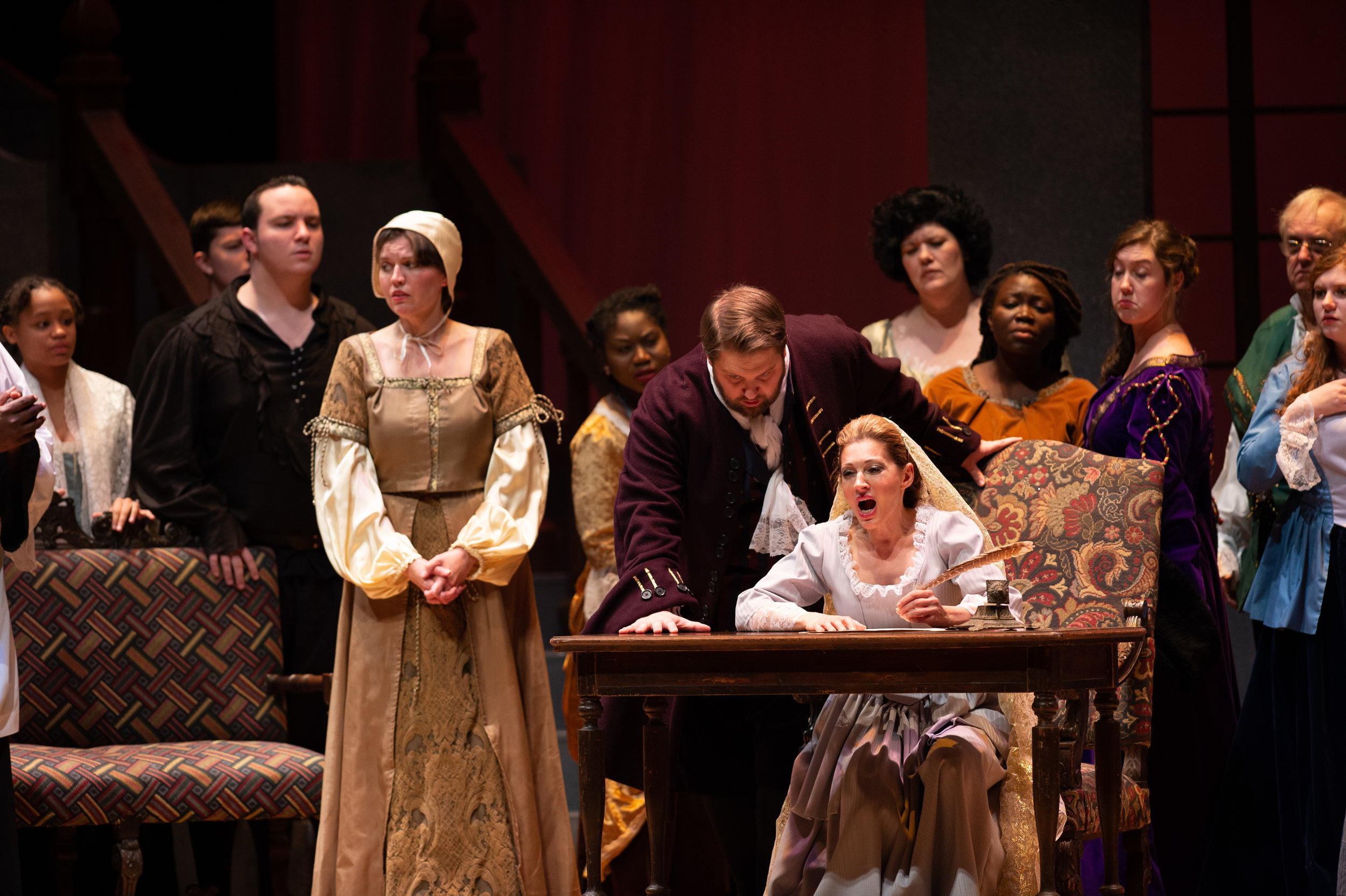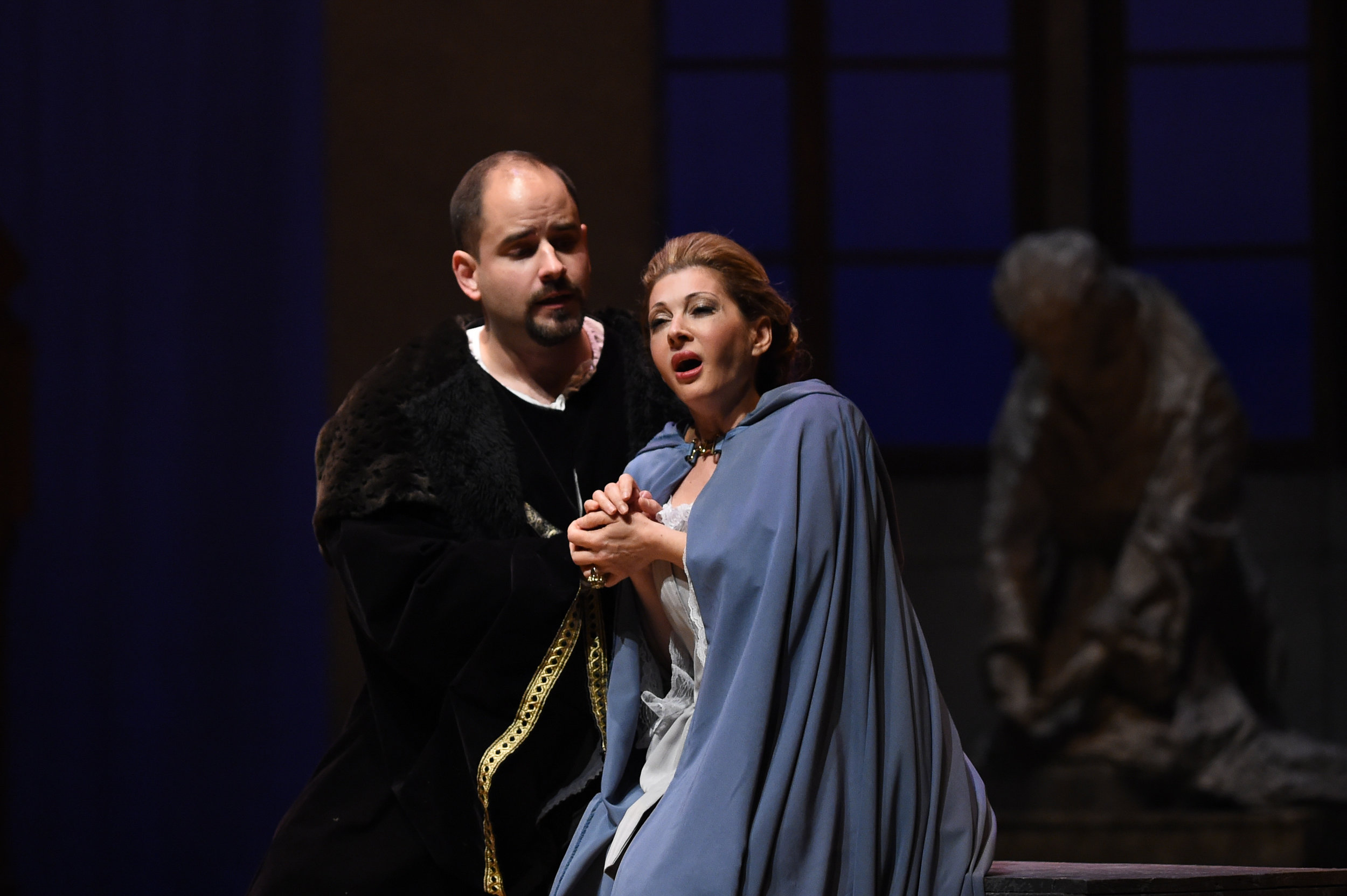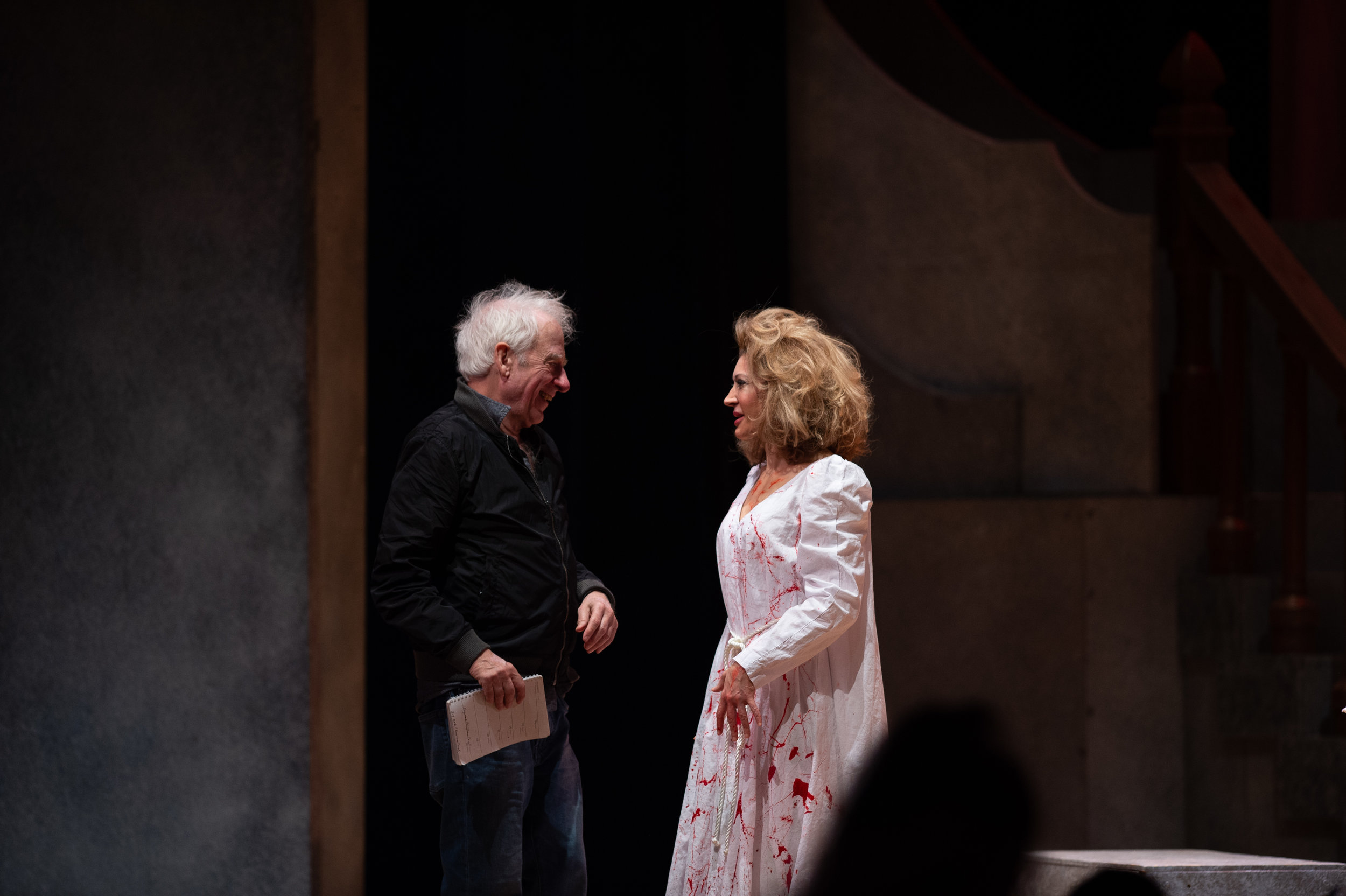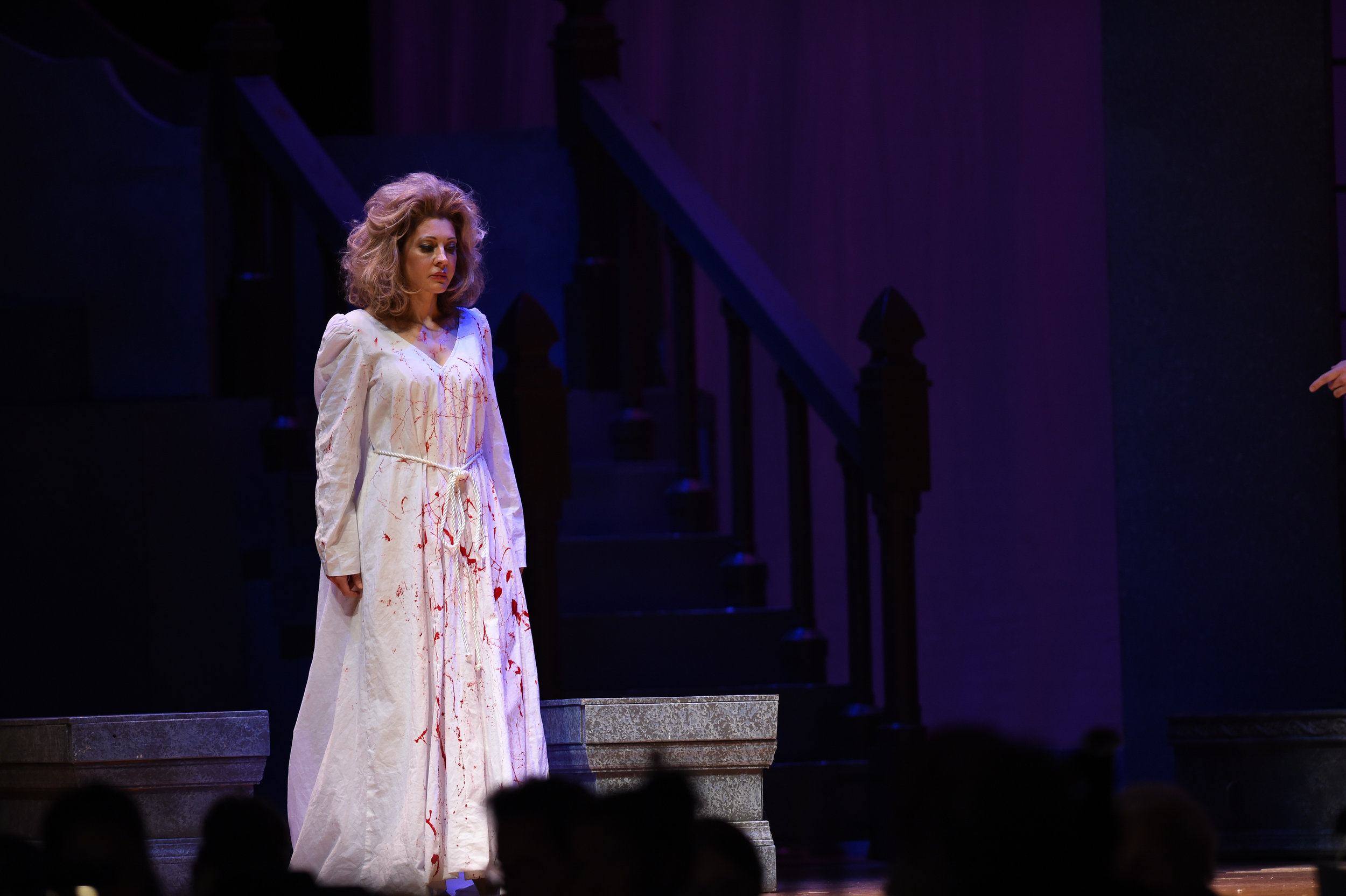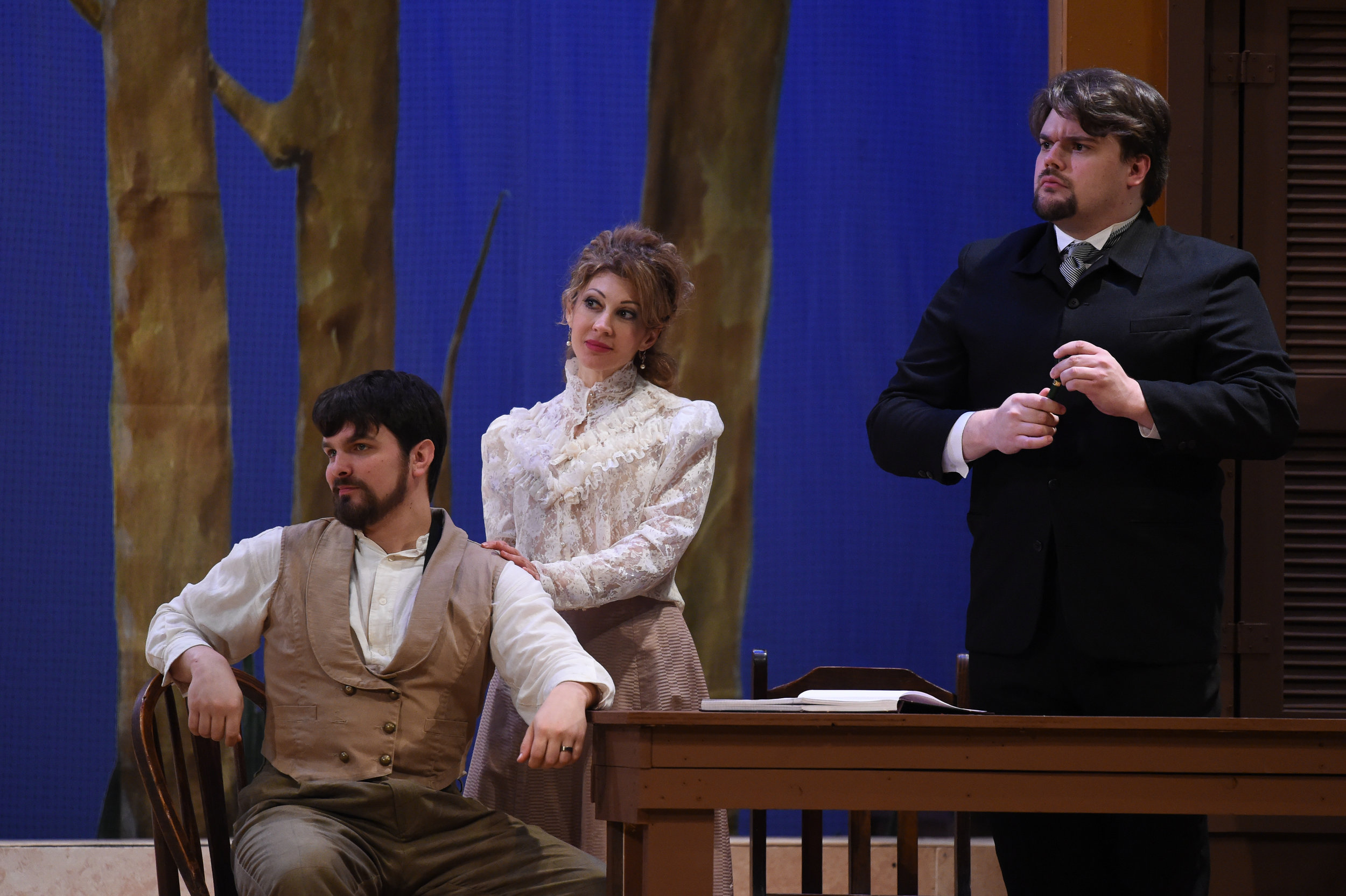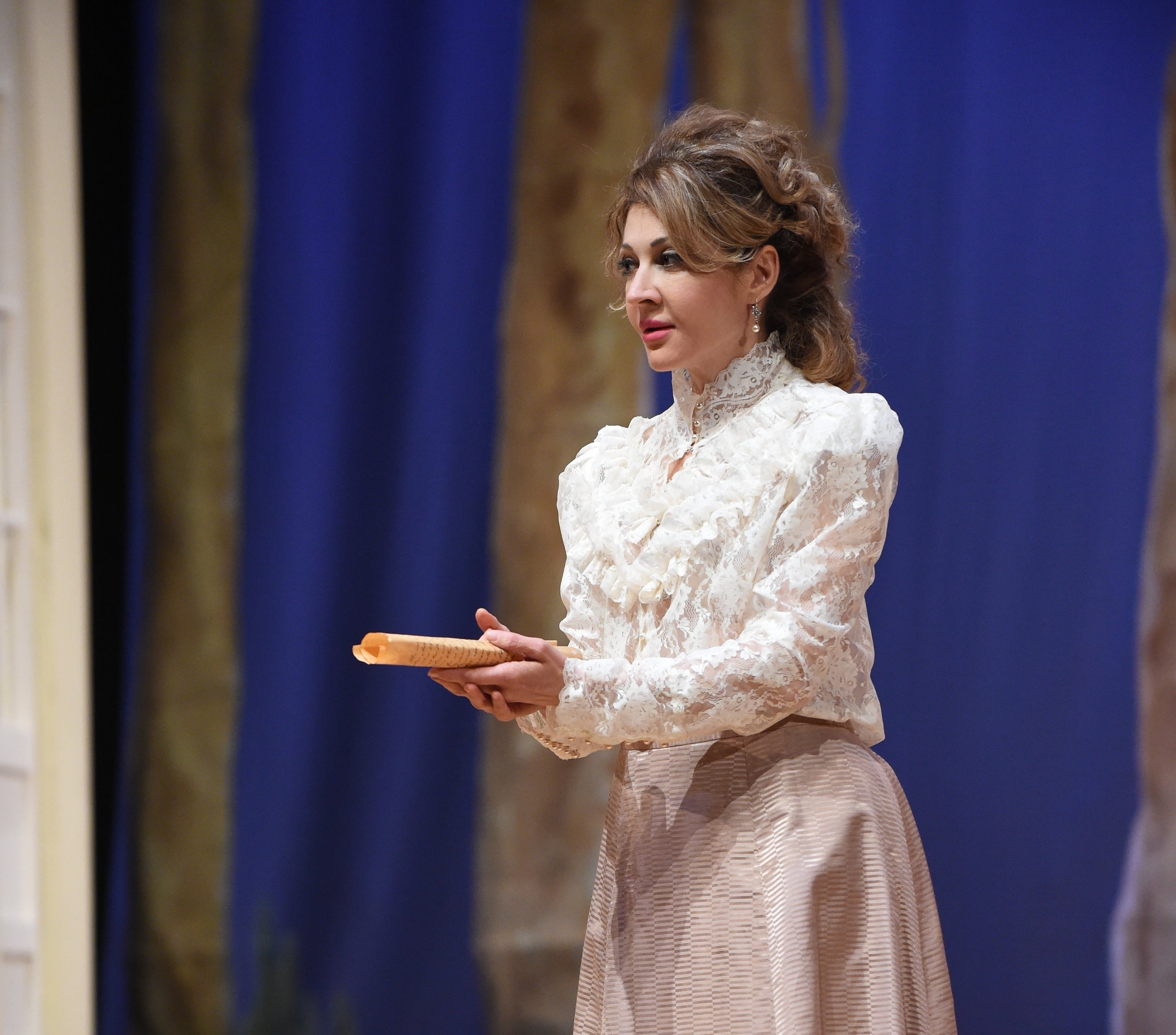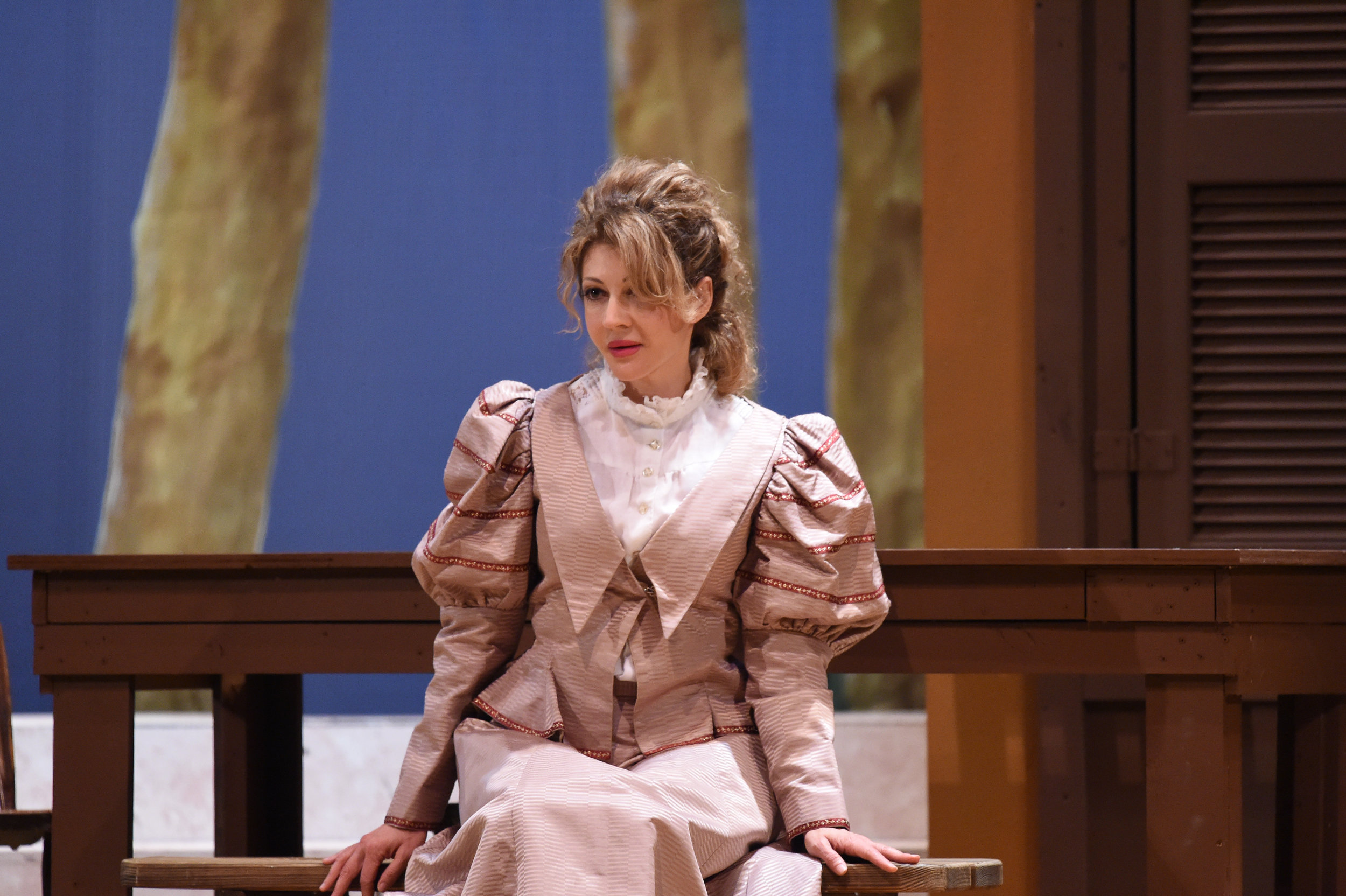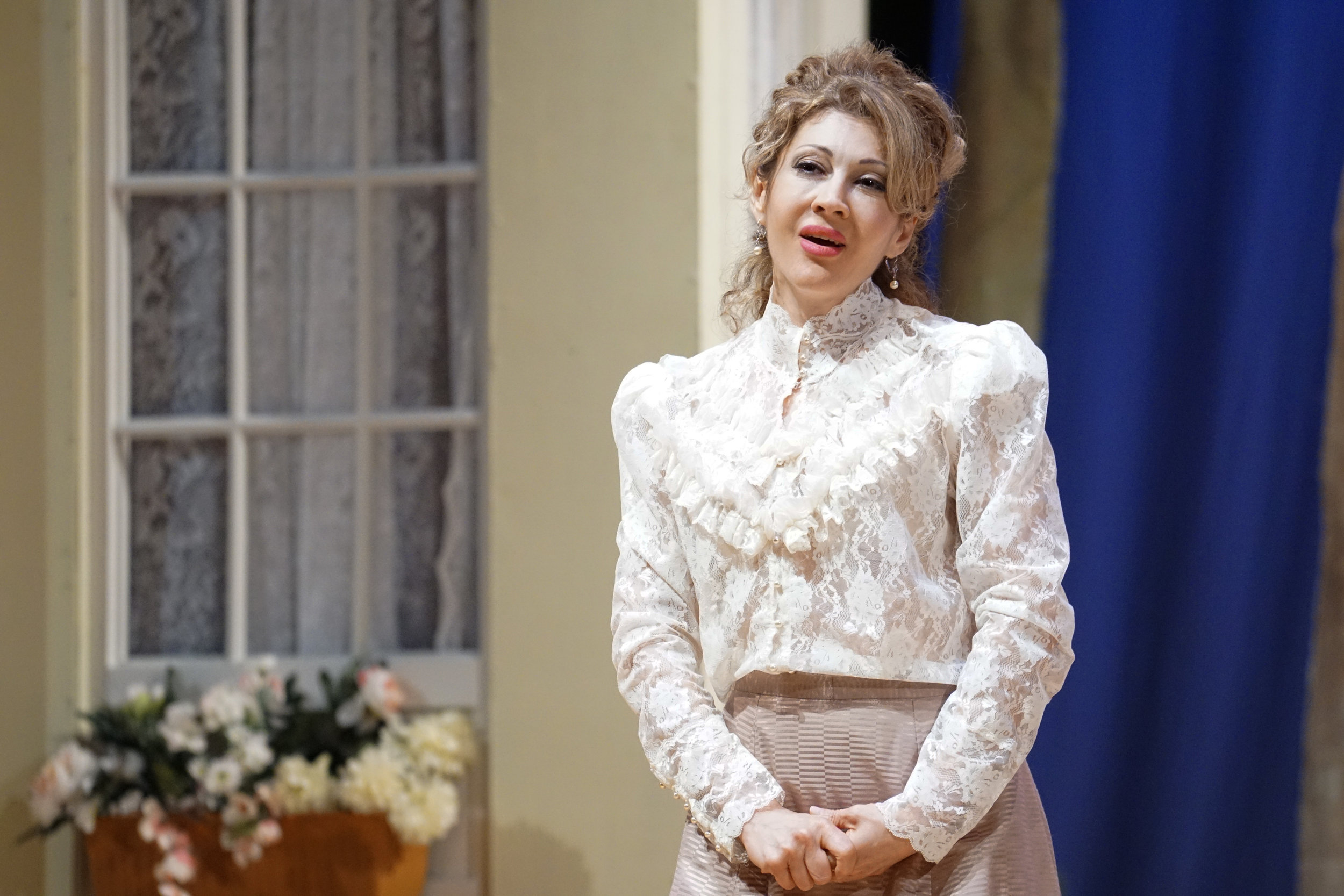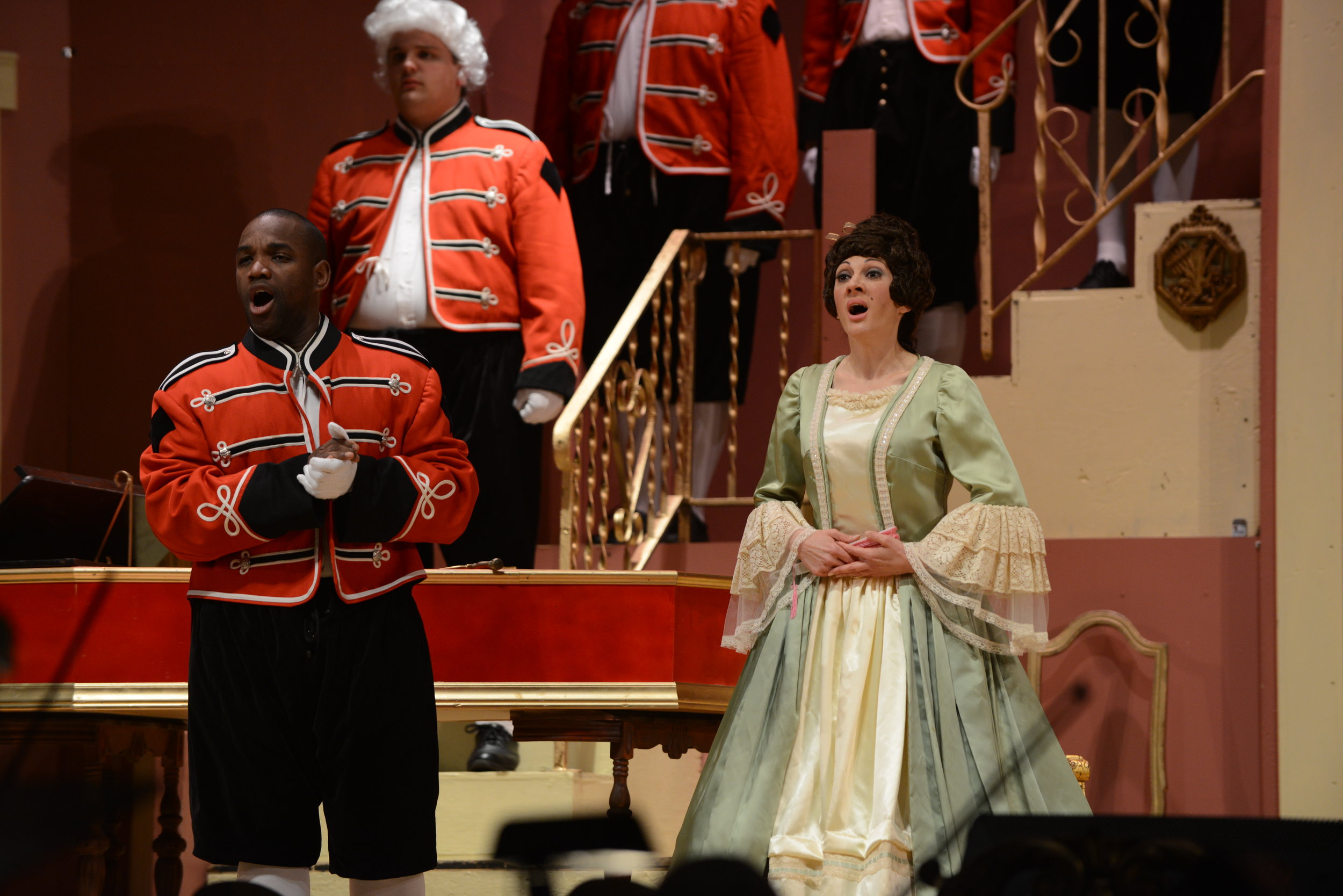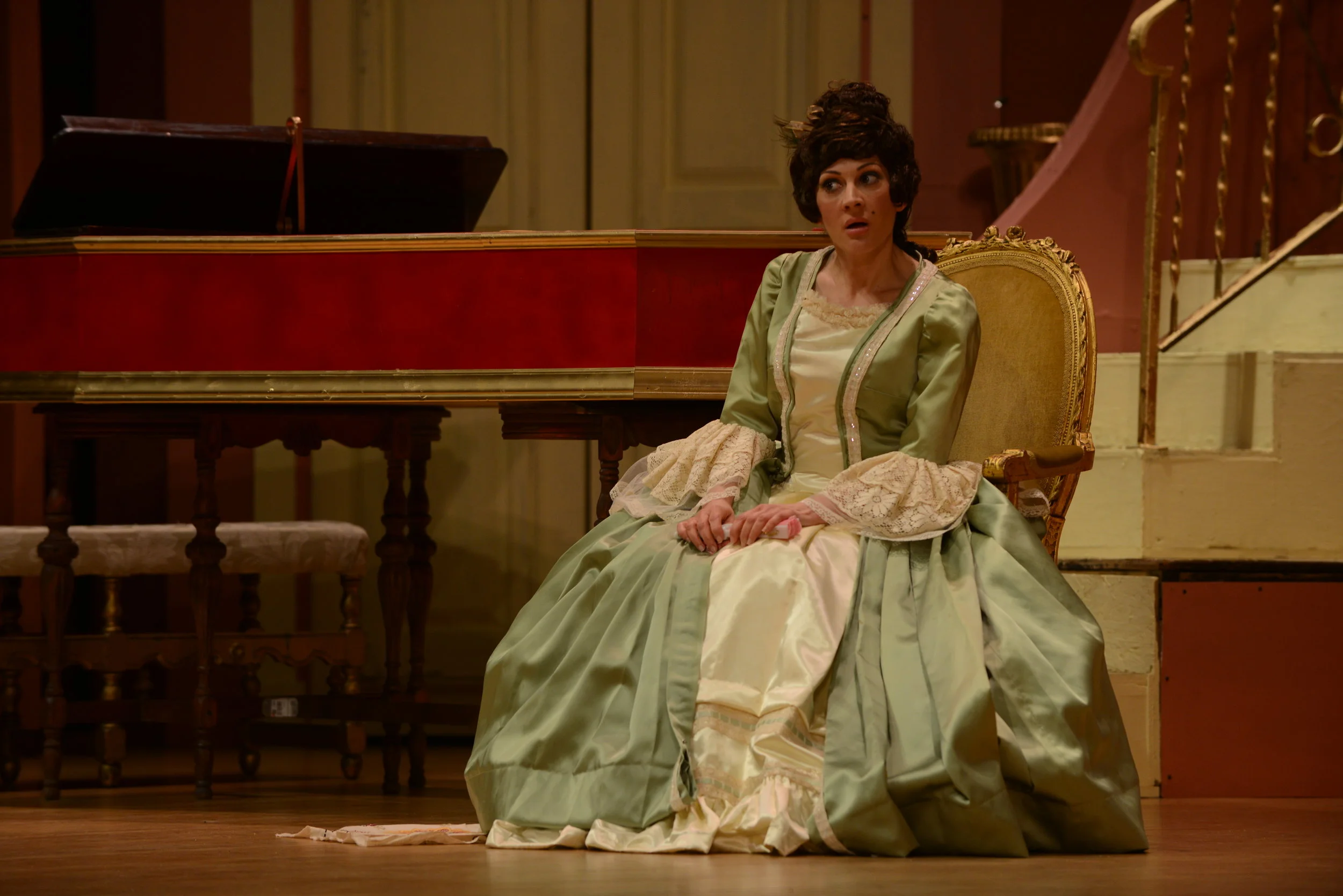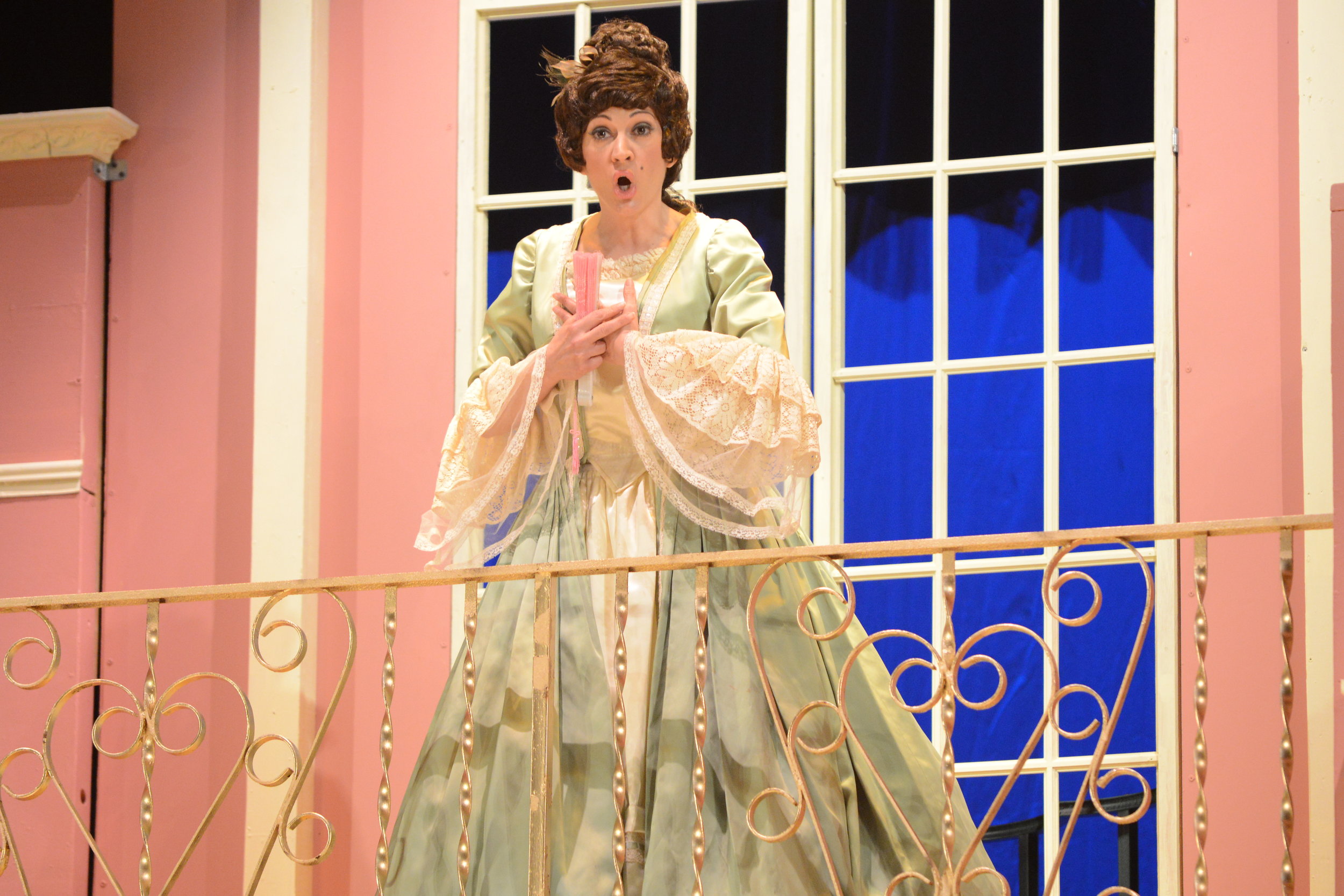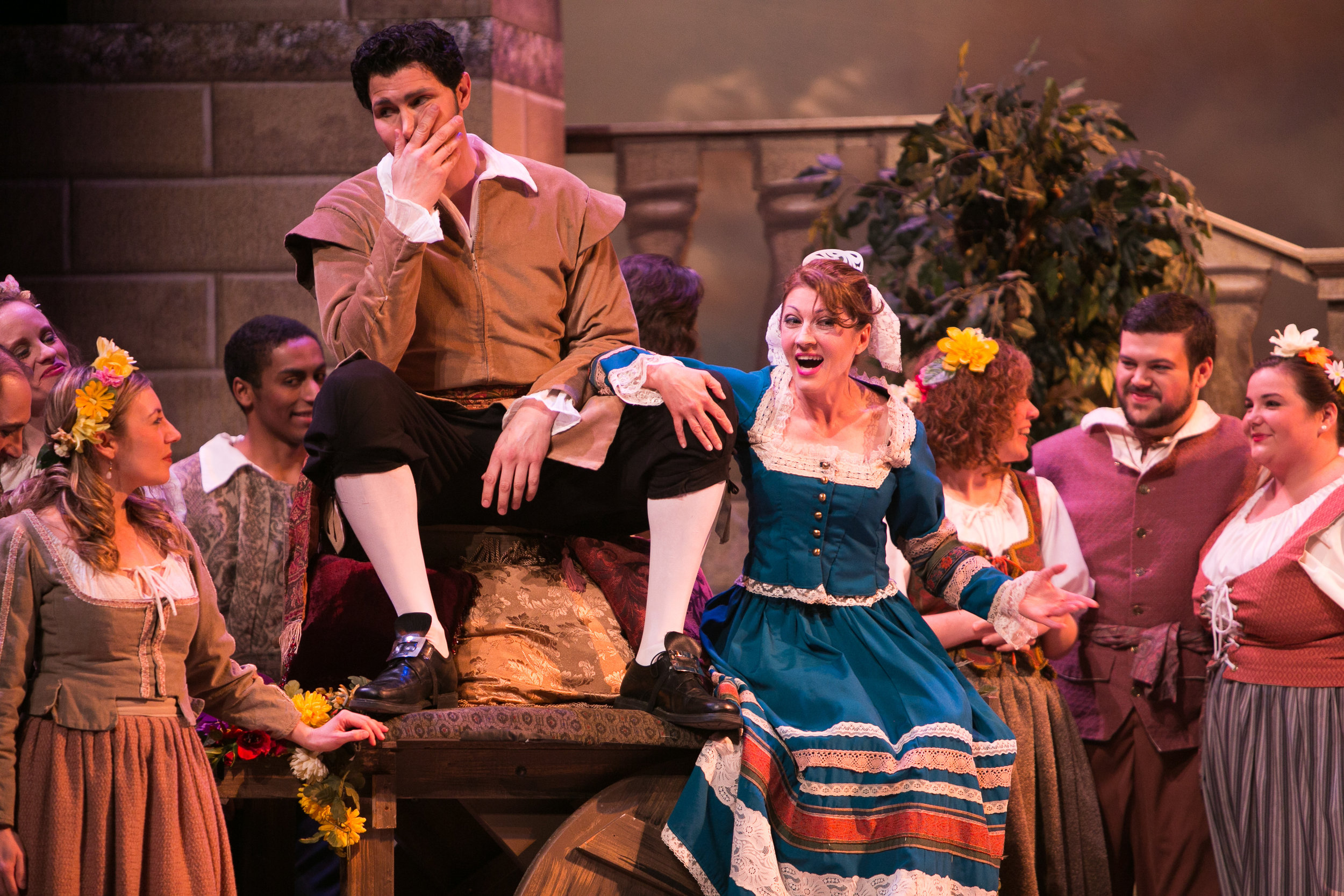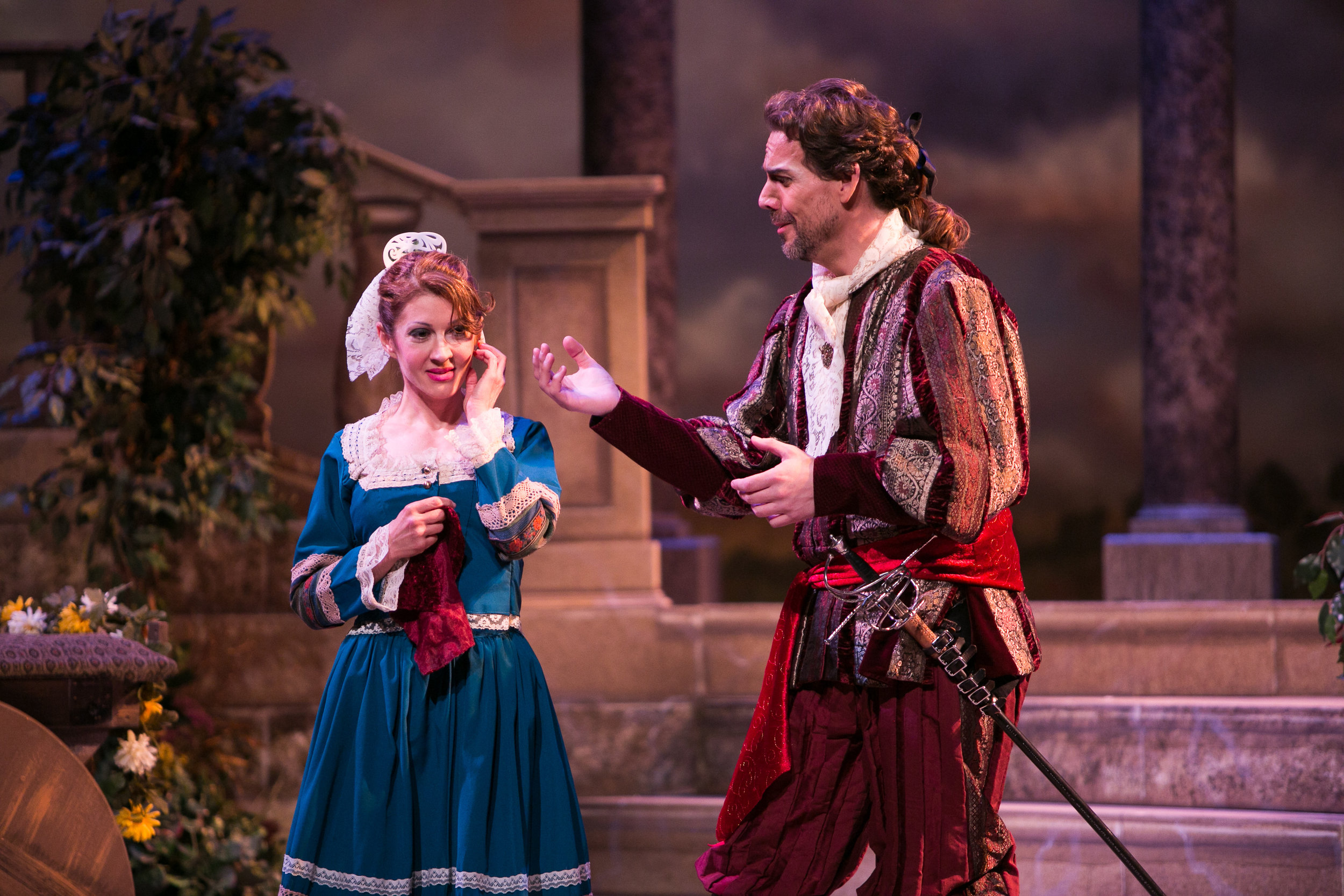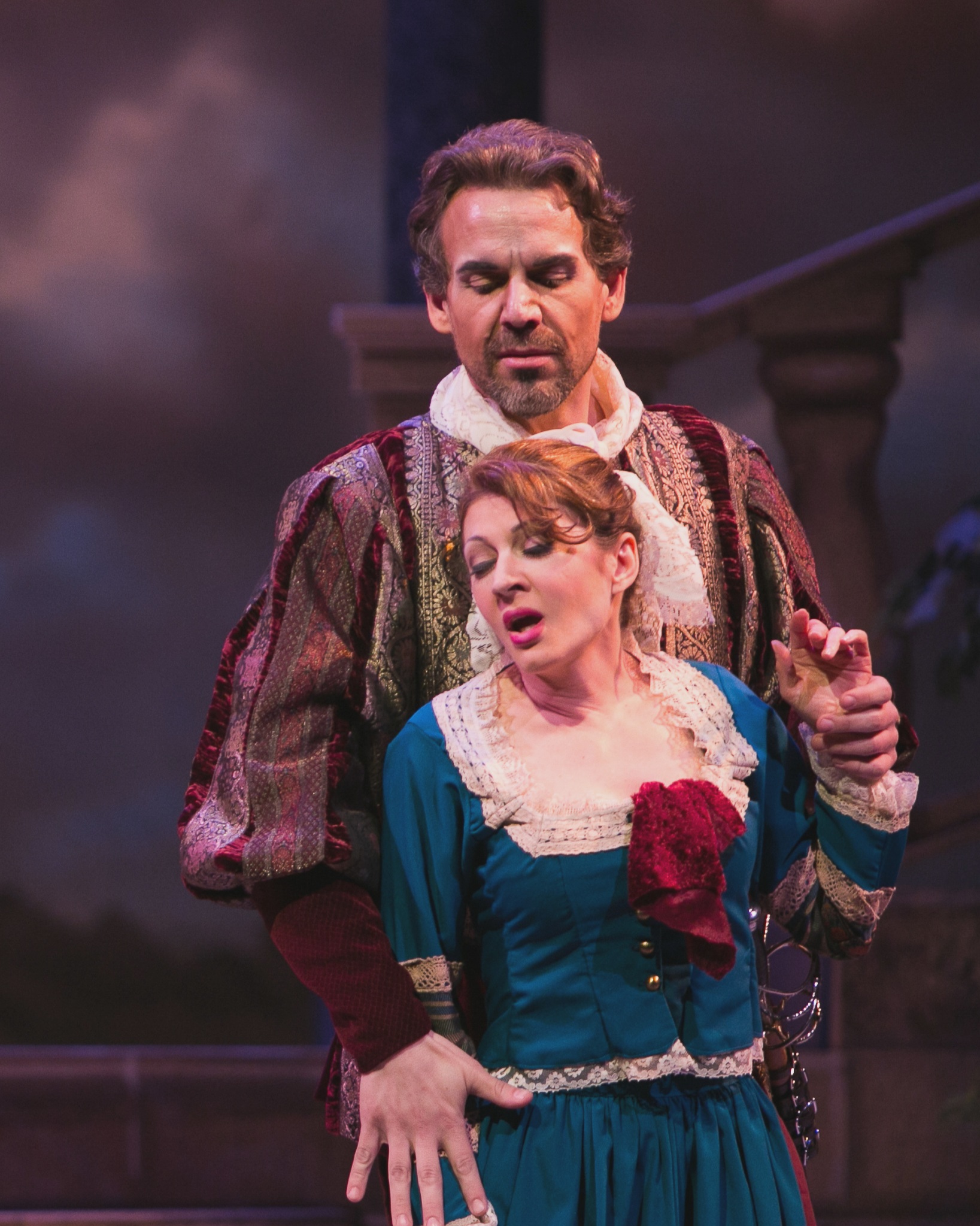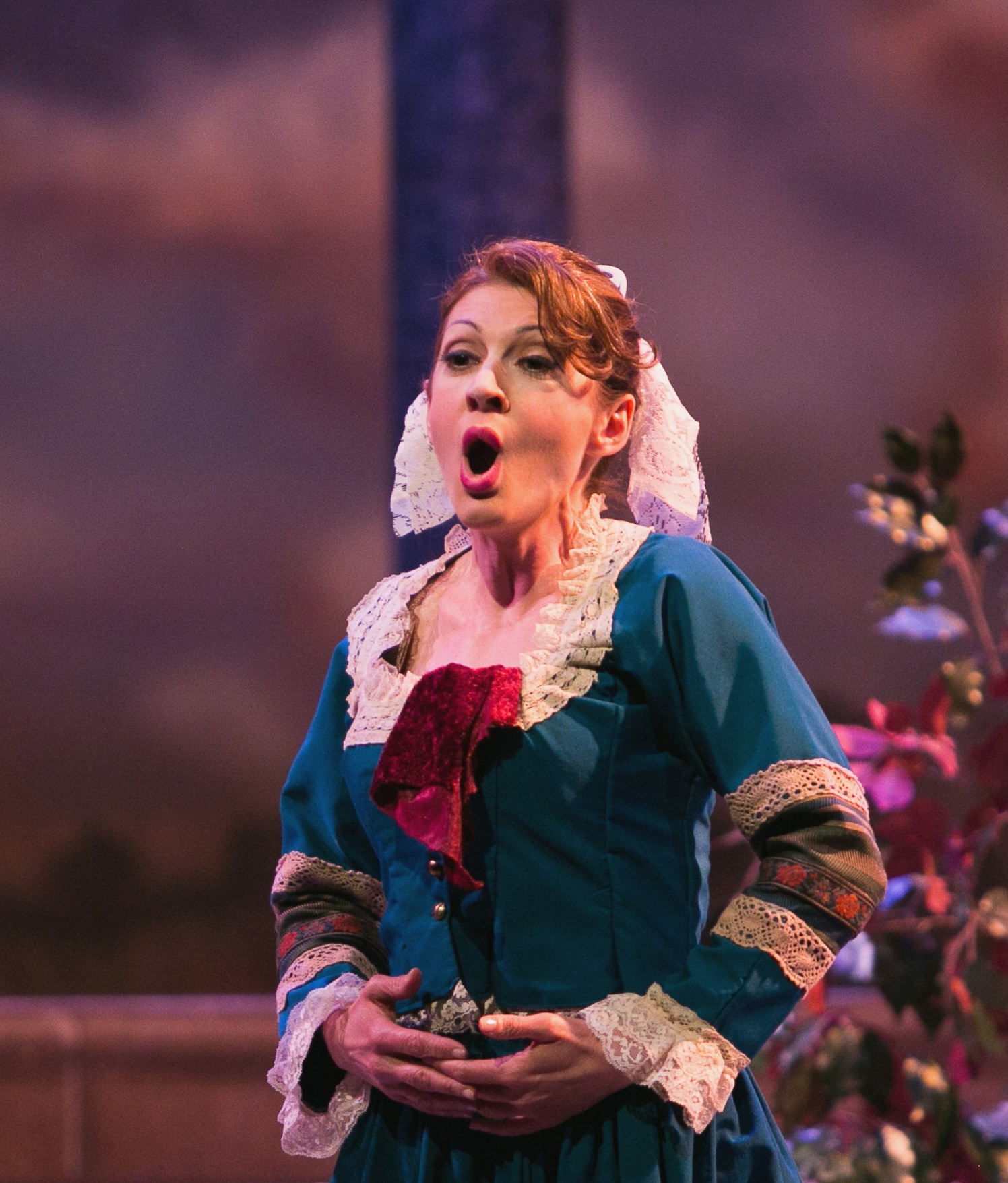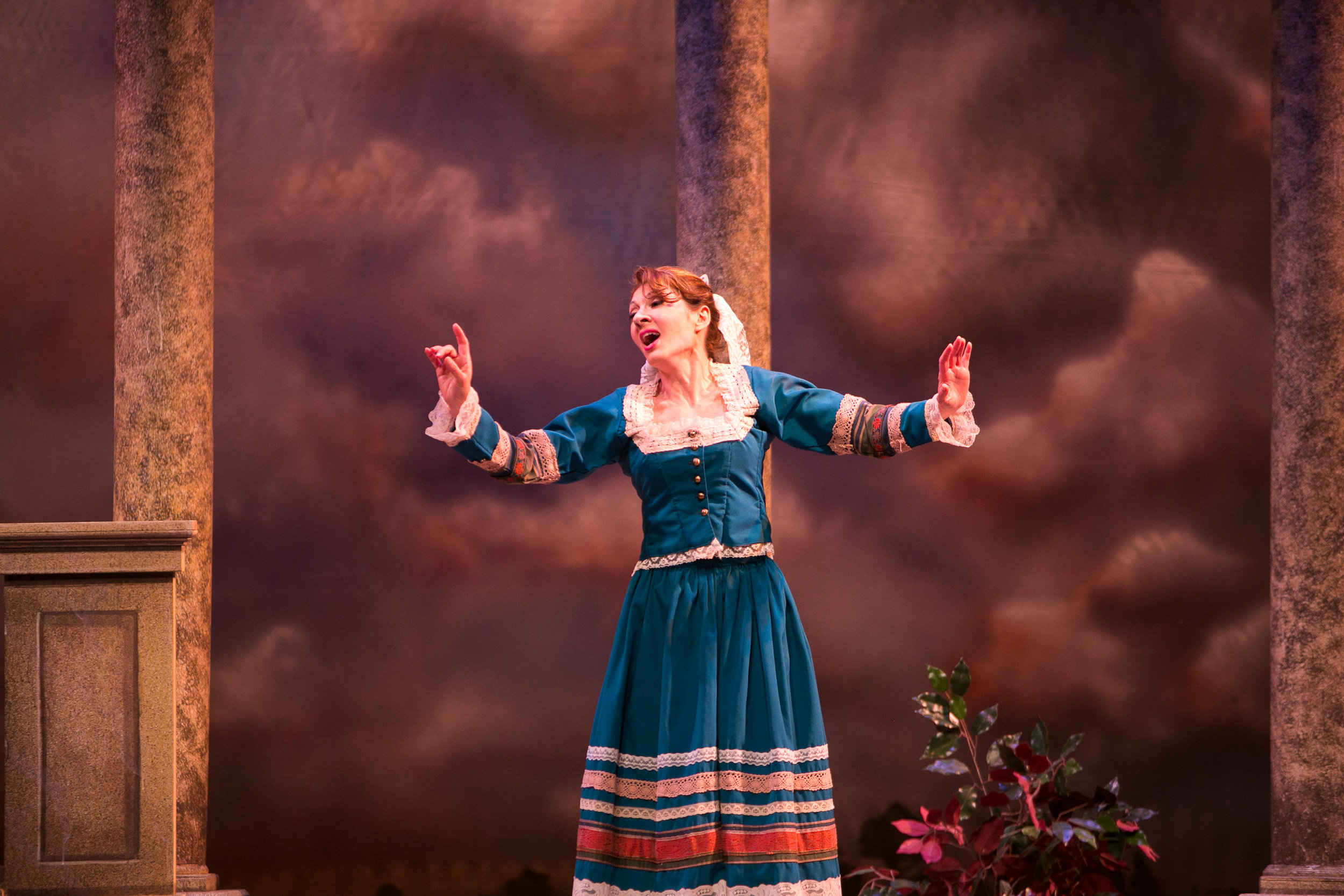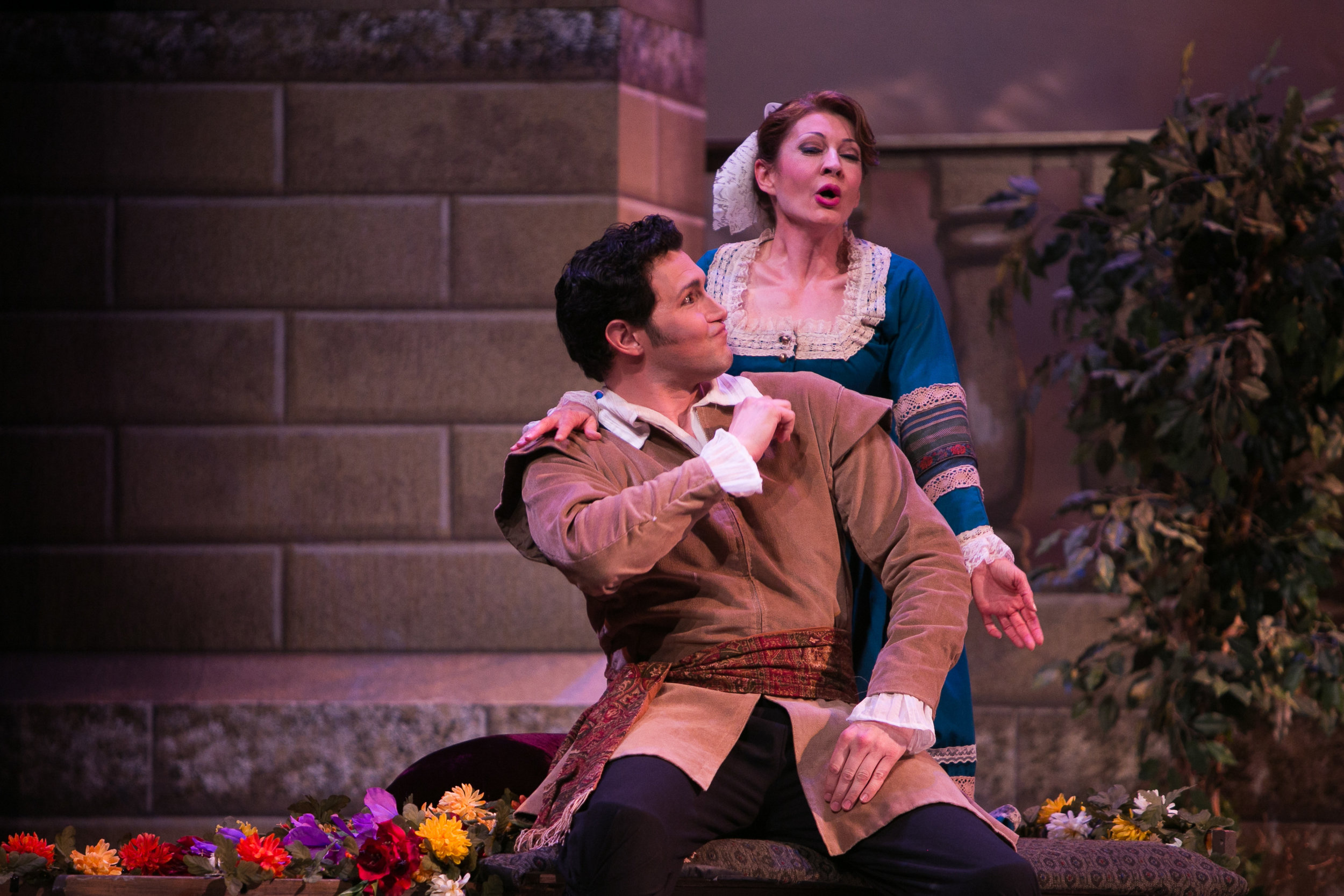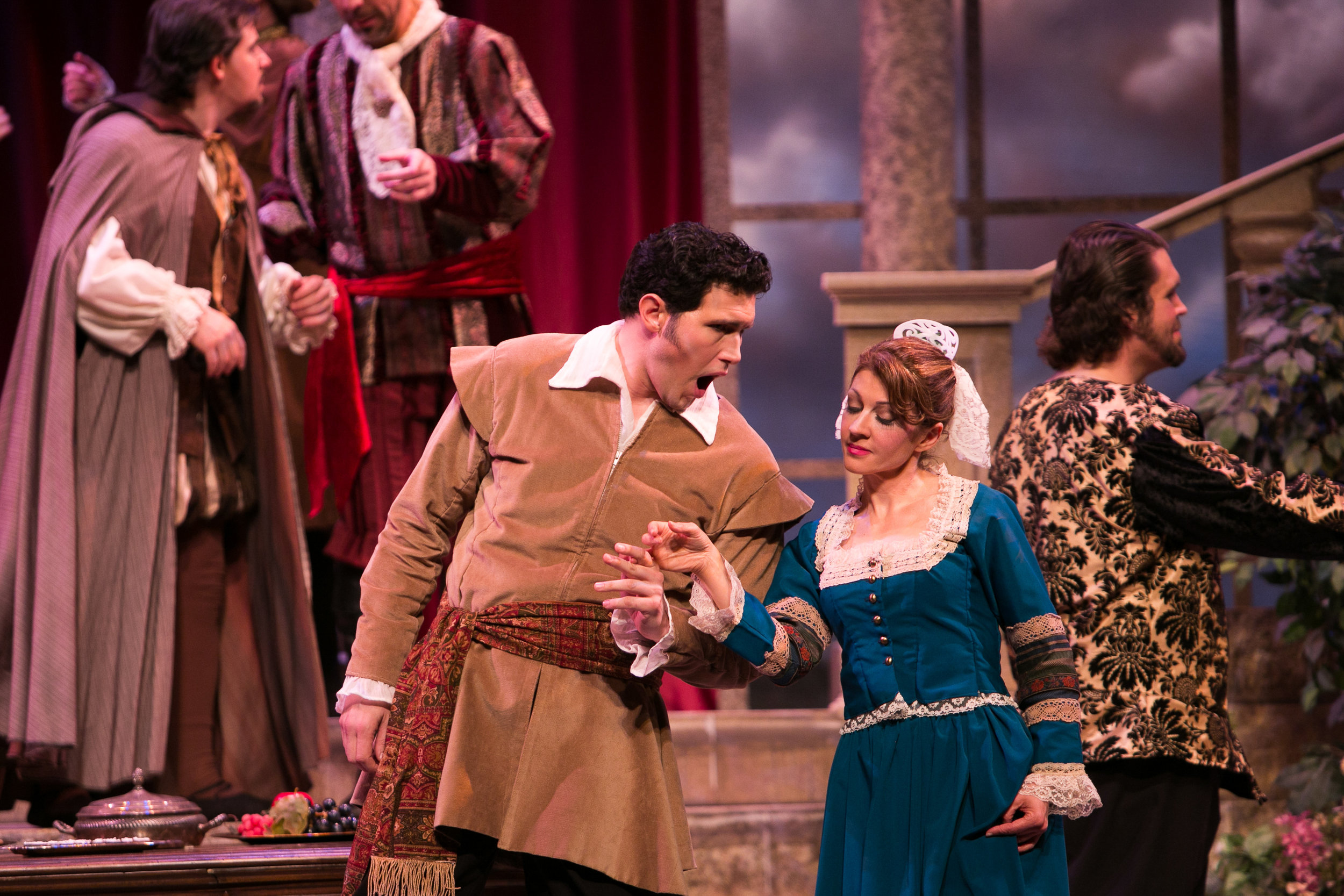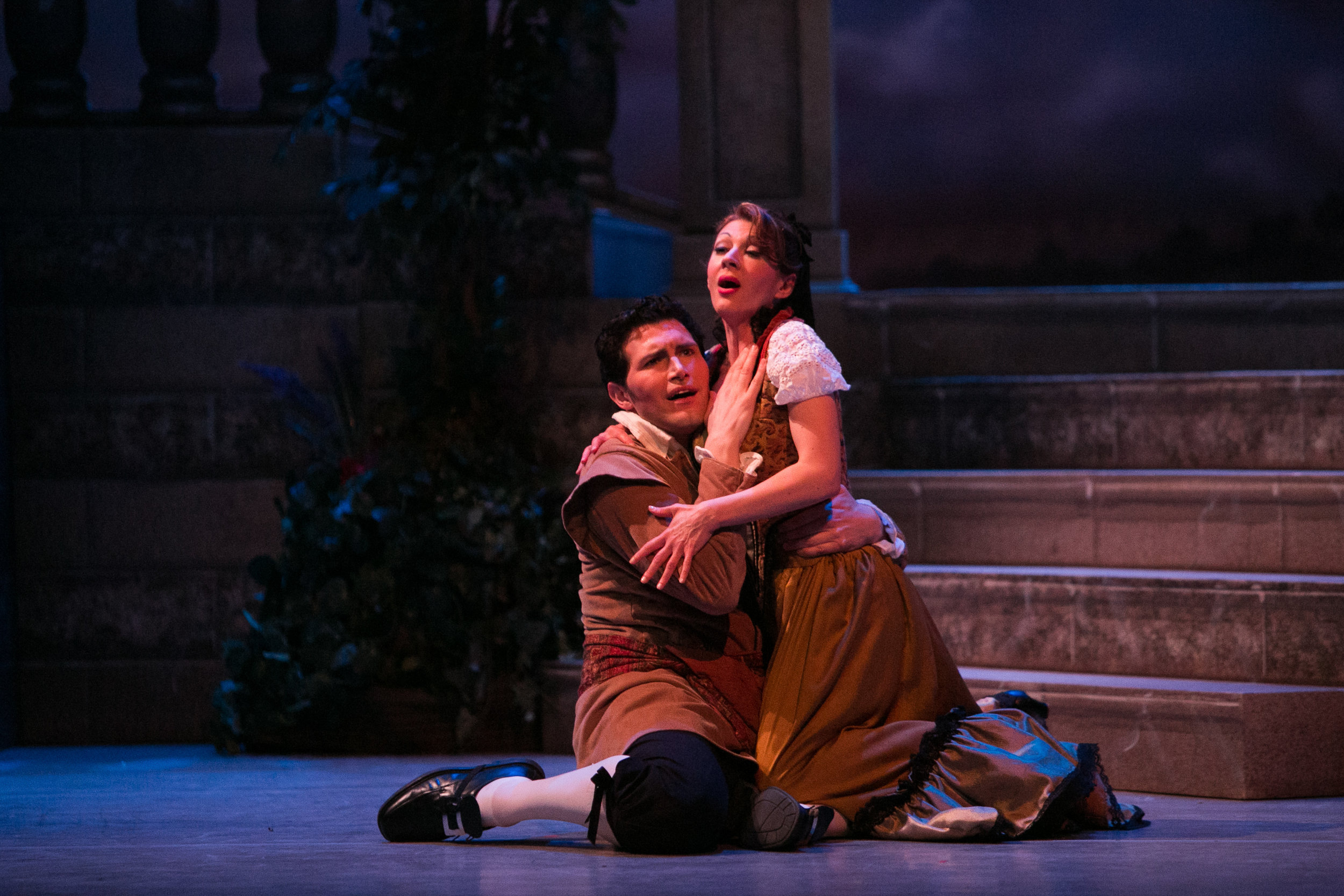LISTEN
Batti, batti o bel Masetto
Zerlina - Don Giovanni
Reviews
Youngstown-born soprano Randa Rouweyha was terrific as Adina. Her lovely lyric soprano voice gracefully negotiated the many intricacies of the challenging bel canto role. She proved to be equally exceptional in the ensembles.
Adina in L'elisir d’amore - Cleveland Classical
Brownlee’s Rosina was the saucy soprano, Randa Rouweyha, who could clearly cause a great deal of trouble for anyone who stood between her and the dishy Almaviva. She tossed off her opening ‘una voce poco fa’ with the greatest of ease and obvious enjoyment.
Rosina in Il barbiere di Siviglia - Opera Pulse
Randa Rouweyha as Rosina, old Dr. Bartolo’s reluctant and sophisticated ward, shined brightly, as she dashed about the stage. Her eyes gleamed, and she tossed-off her difficult bel canto soprano lines with knowing looks and animated gestures.
Rosina in Il barbiere di Siviglia - Cleveland Classical
The cast of this production is highlighted by soprano Randa Rouweyha, a formidable talent who lends both vigor and pathos to her tragic role of Anna. It is her moving and effective embodiment of heartbreak that provides the emotional soul of this production.
Anna in Le Villi - The Washington Times
Randa Rouweyha as Violetta, the dying courtesan who gains, loses, and briefly regains one last, true love. Simply put, Rouweyha is this production. Or, at least, it's all her and Verdi's timeless music.
First, her voice: Rouweyha is in fine form both with the more challenging arias and her softer lyricism. Her higher register is liquid and lovely, and she largely pulls off Act I’s coloratura with aplomb. Yet it is not for her vocal technique, that her performance is highly worthwhile, but rather for her emotional attention.
Not once does she lose track of any of the multiple layers of feeling in the words, and not once do you get the sense that Verdi’s notes are anything but the expression of Violetta’s troubled heart. She turns the harsher consonants of the lyrics into bitter ironies and pulls tentative hope from the soaring vowels. She even finds a way to make the final turnaround moment, from seeming recovery to death, knowing and self-aware, and all the more tragic for it. Her Sempre libera at the end of Act I is a highlight, as well, an open-voiced ride through the soul of a woman wrestling with joy and doubt.
Violetta in La Traviata - DC Theatre Scene
Prendi, per me sei libero- L'elisir d'amore Soprano Randa Rouweyha
GALLERY
